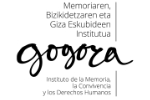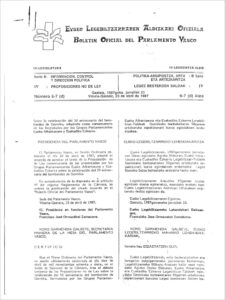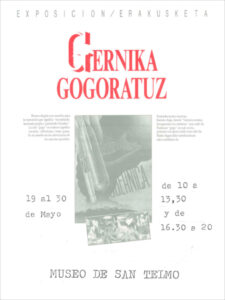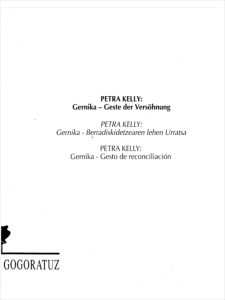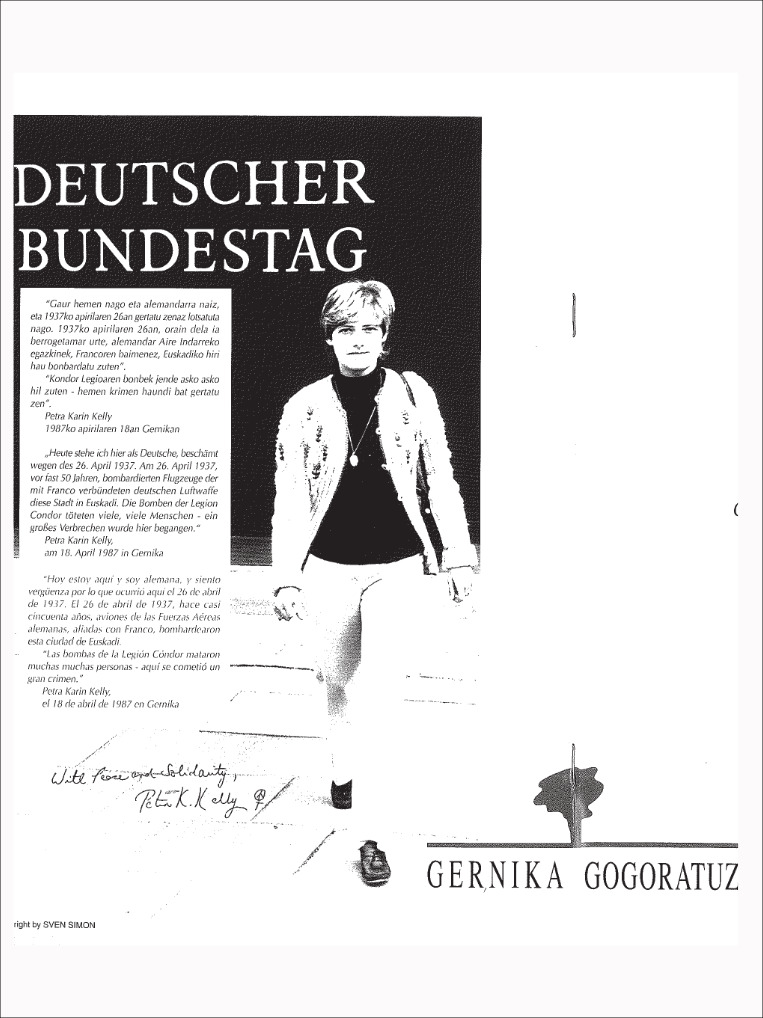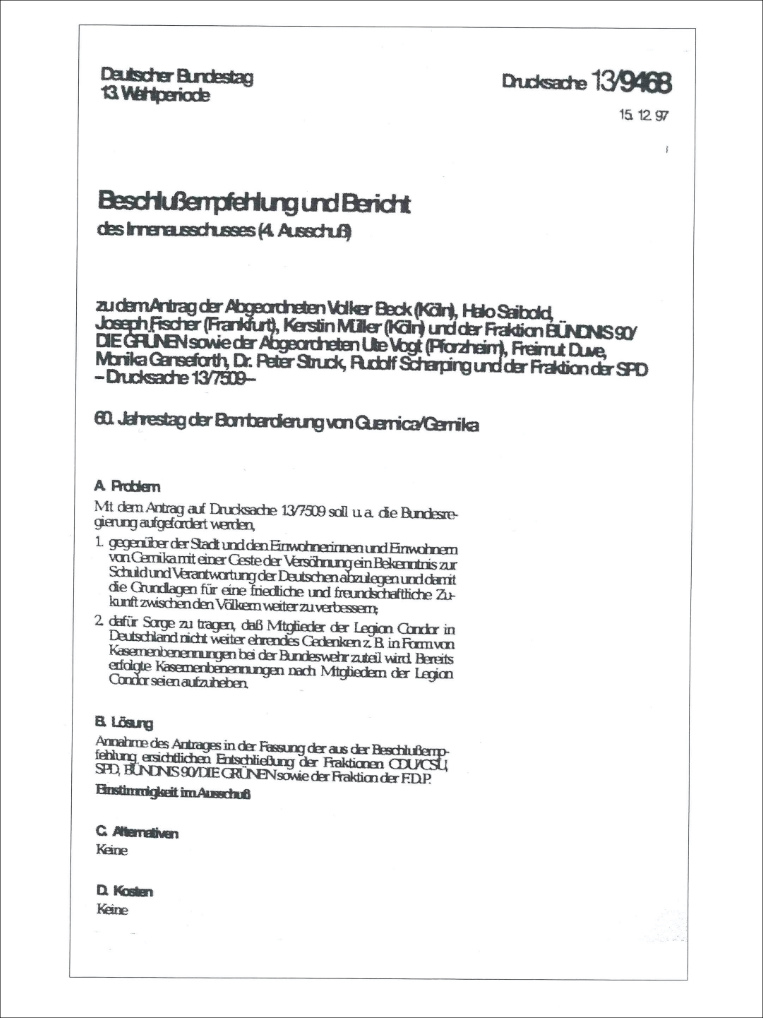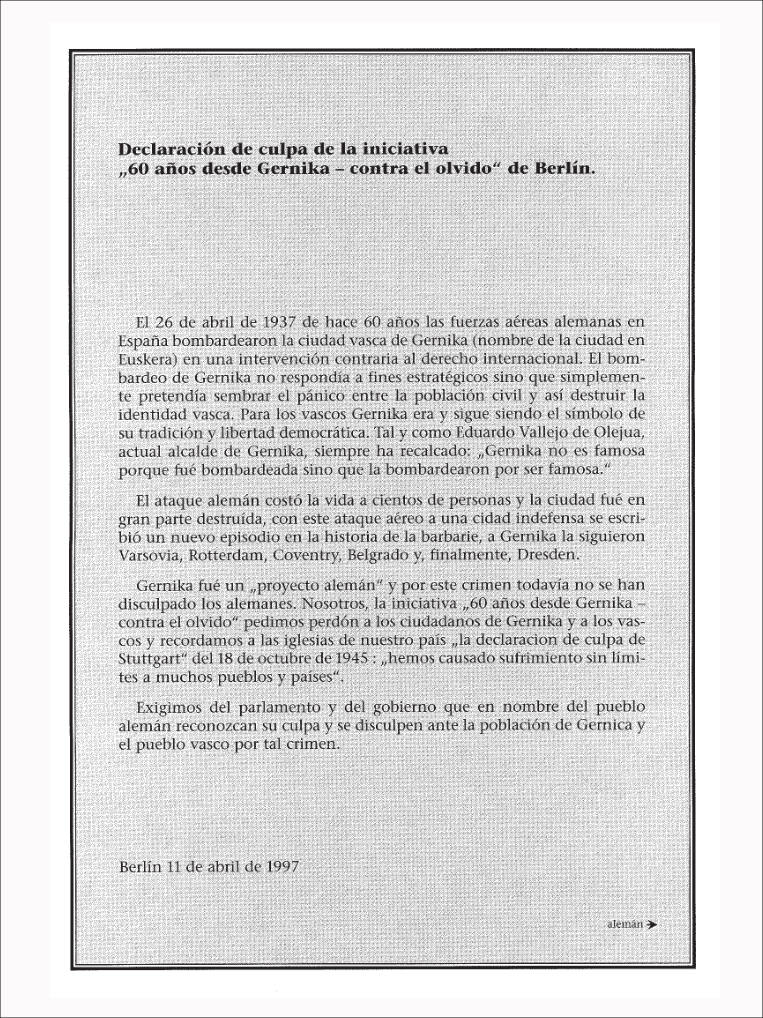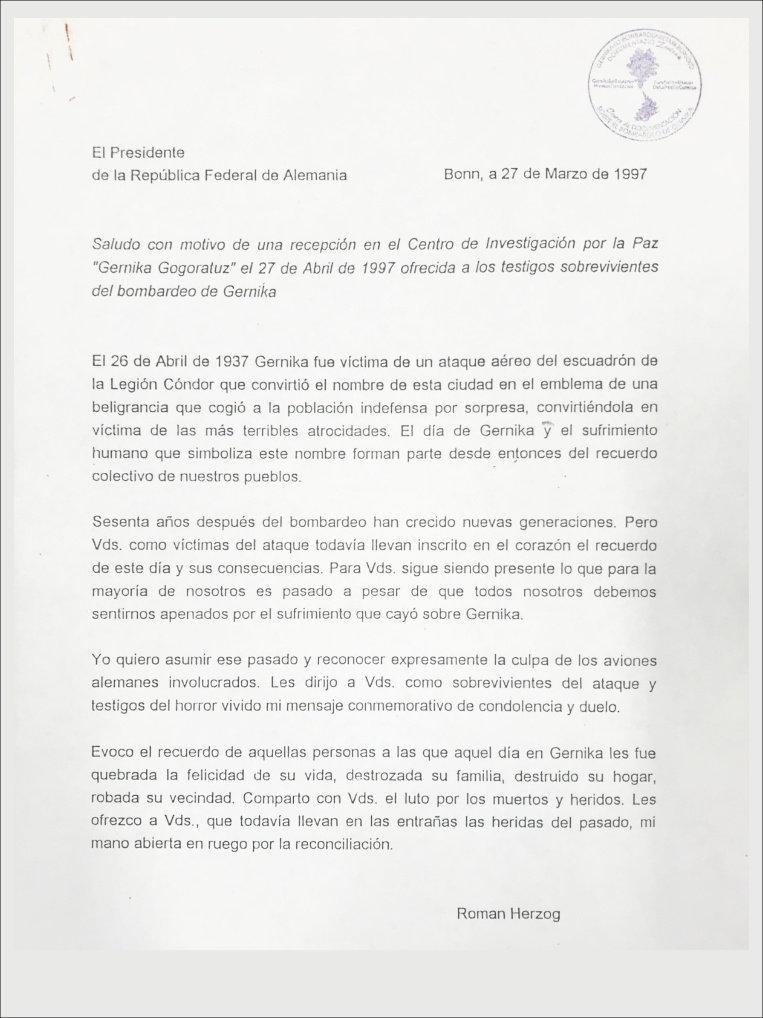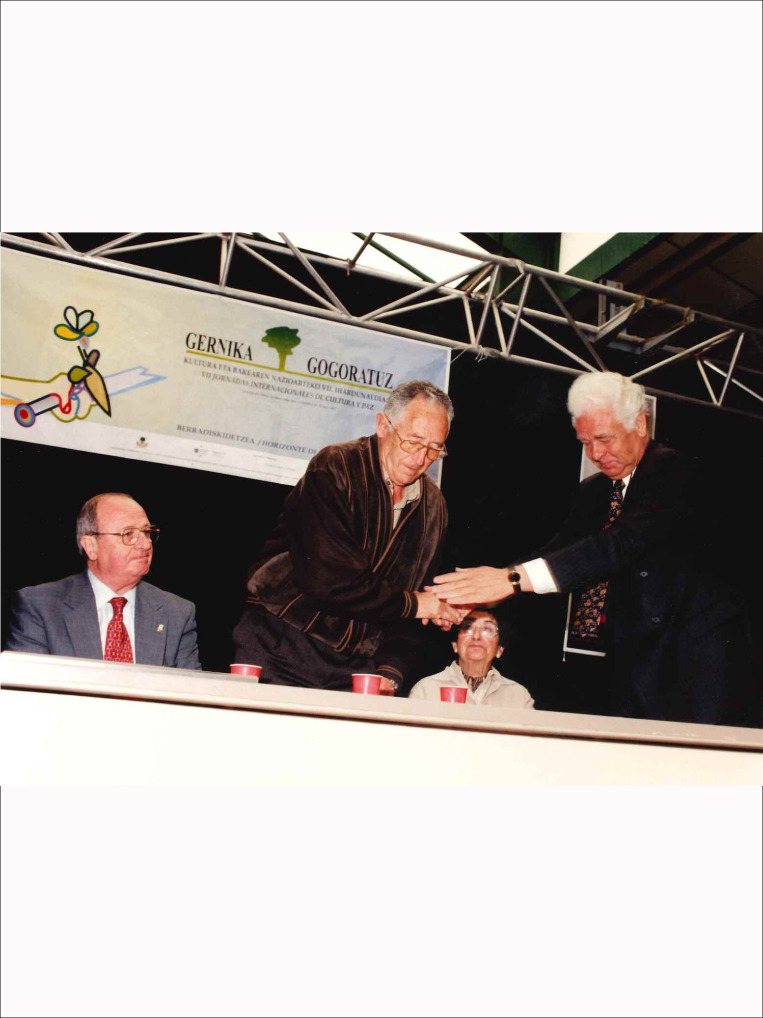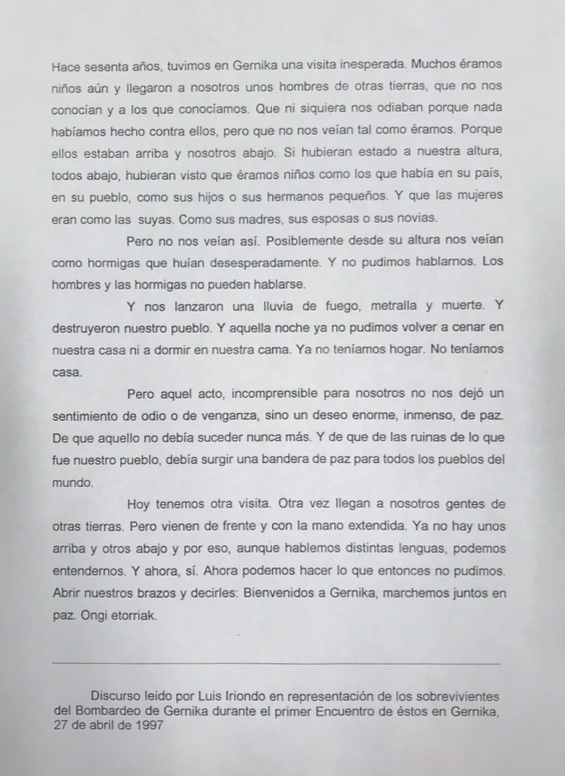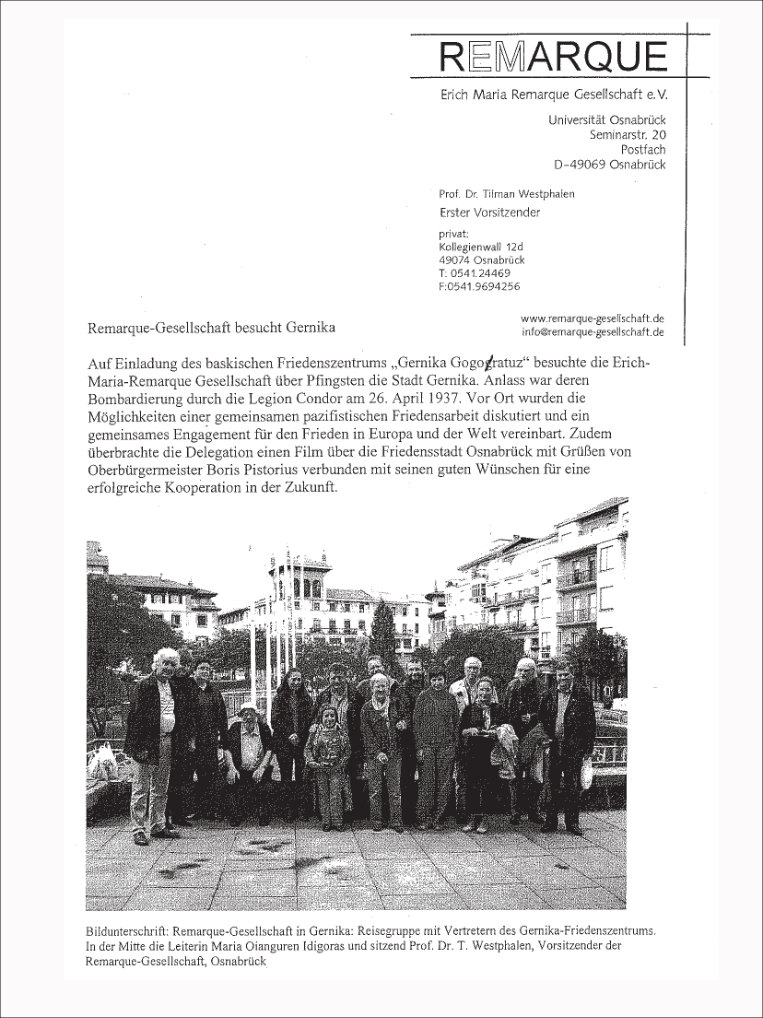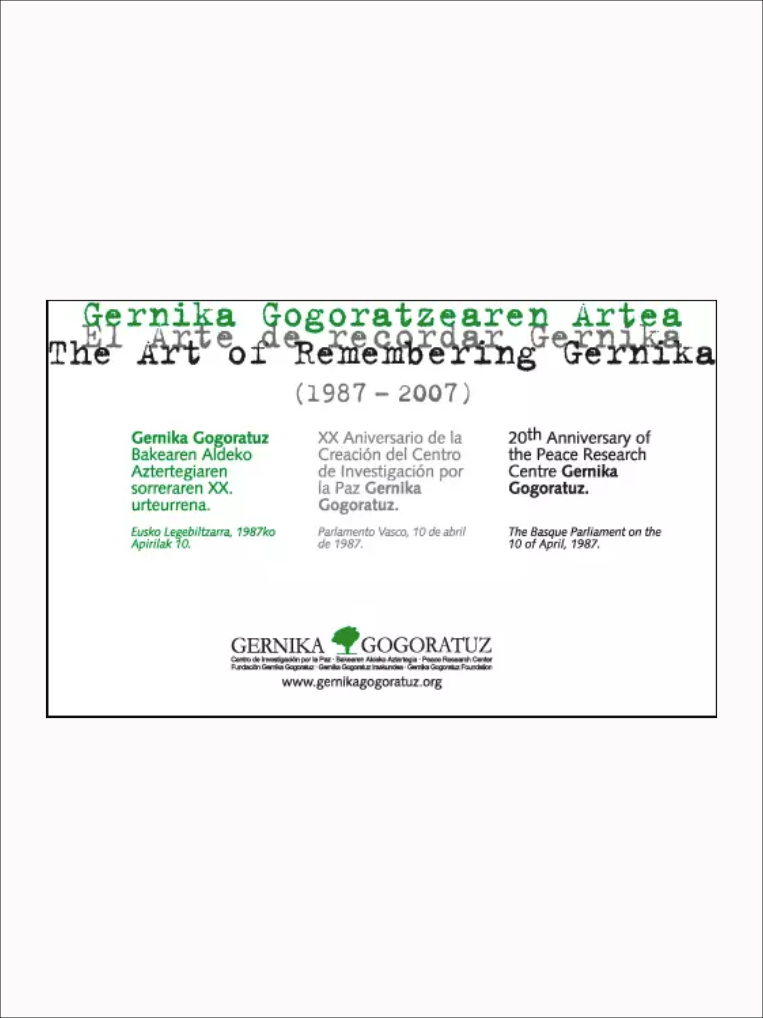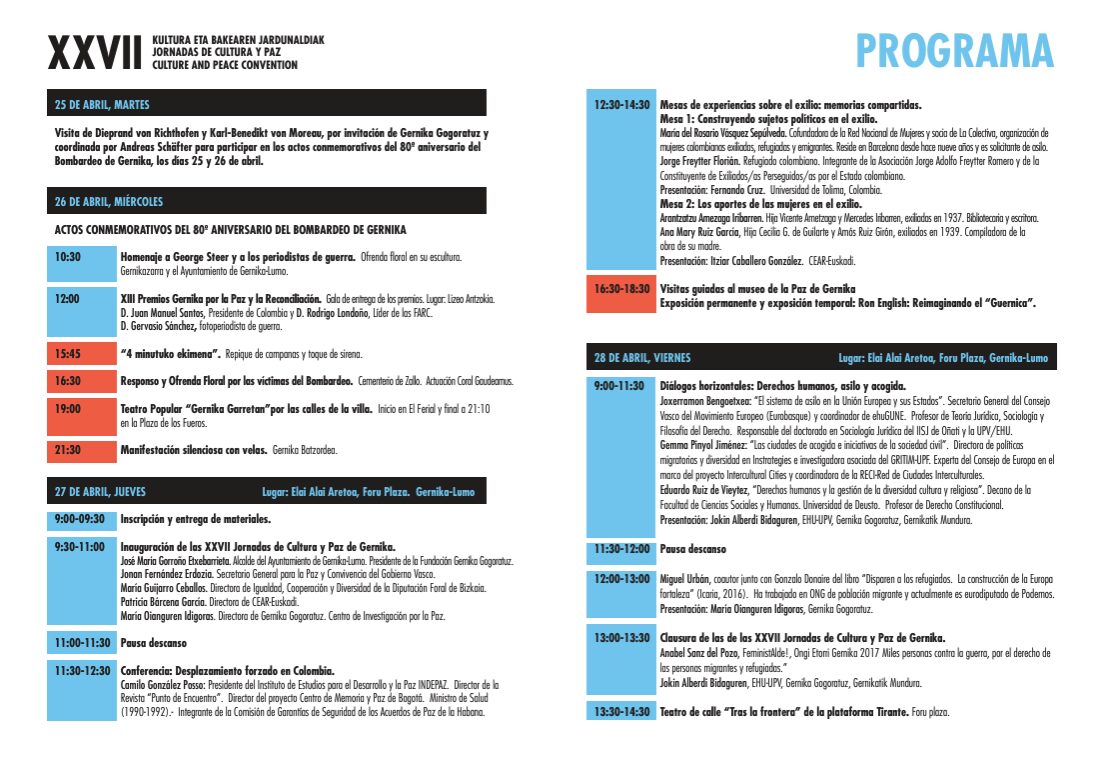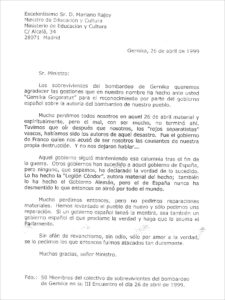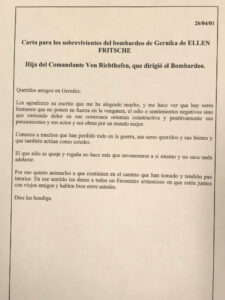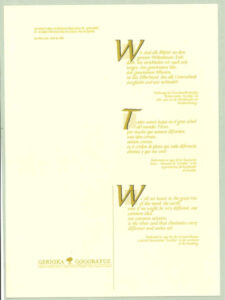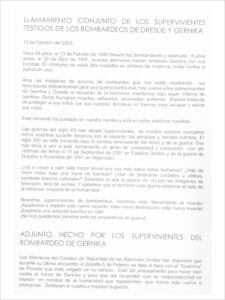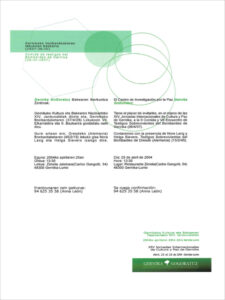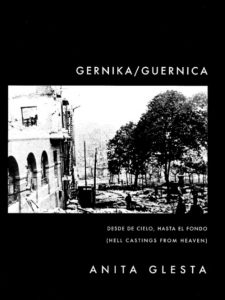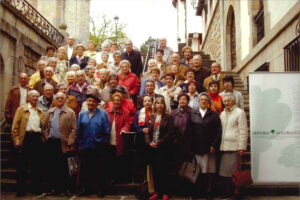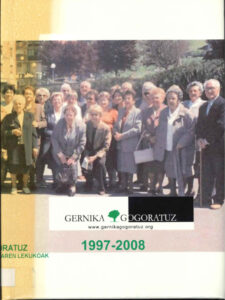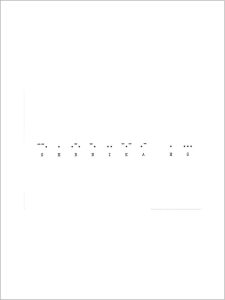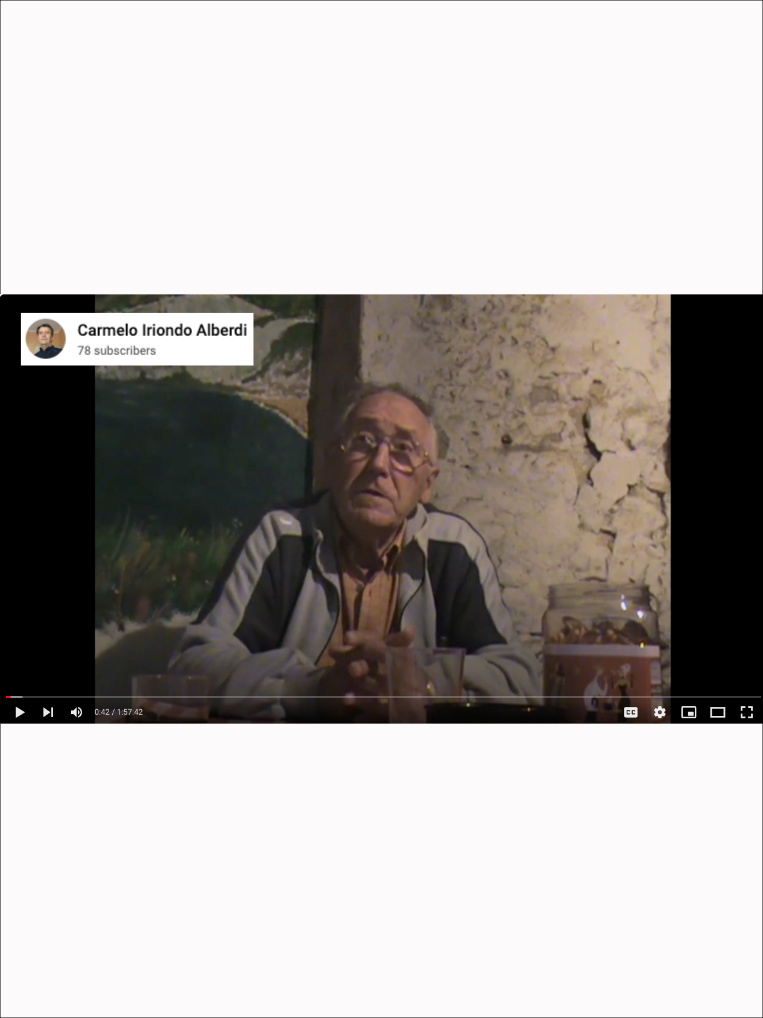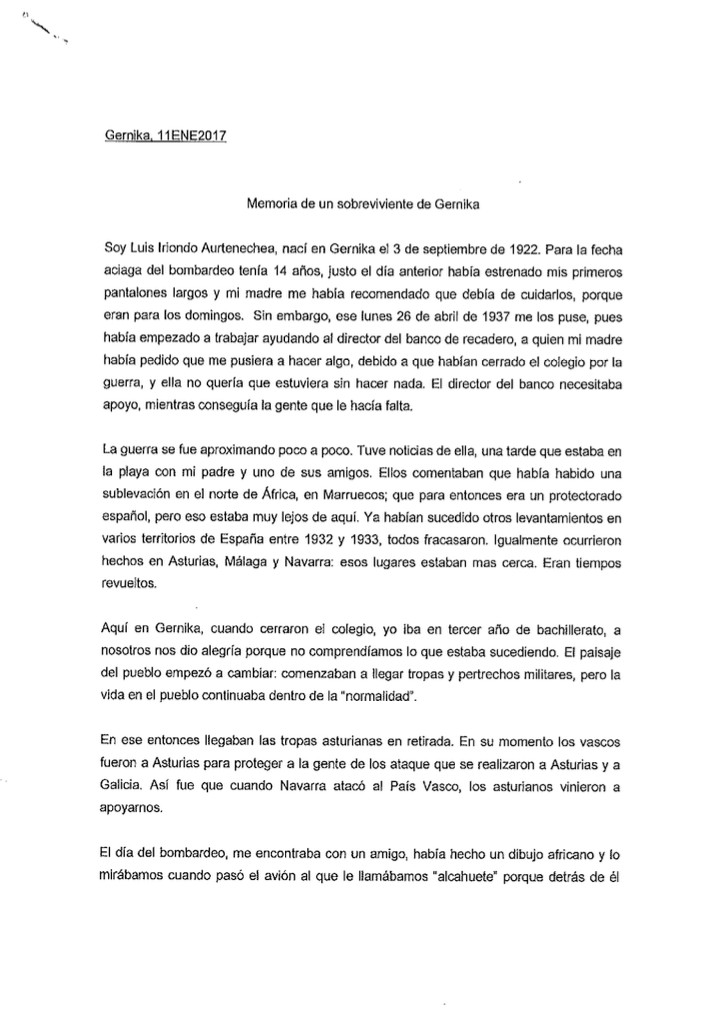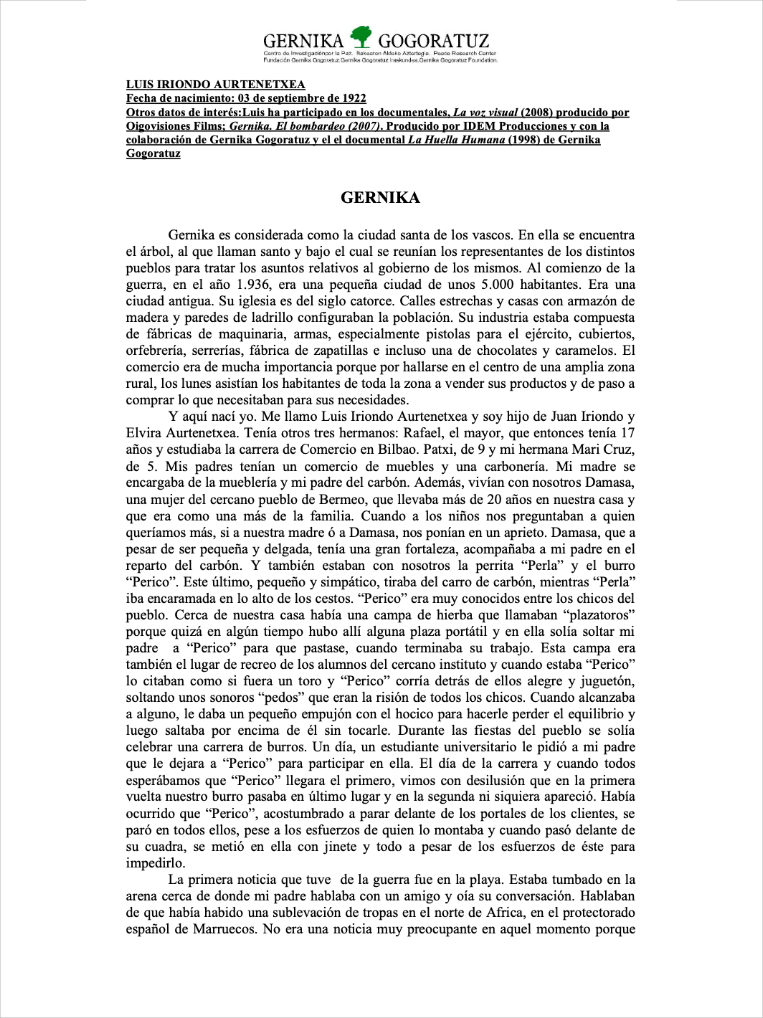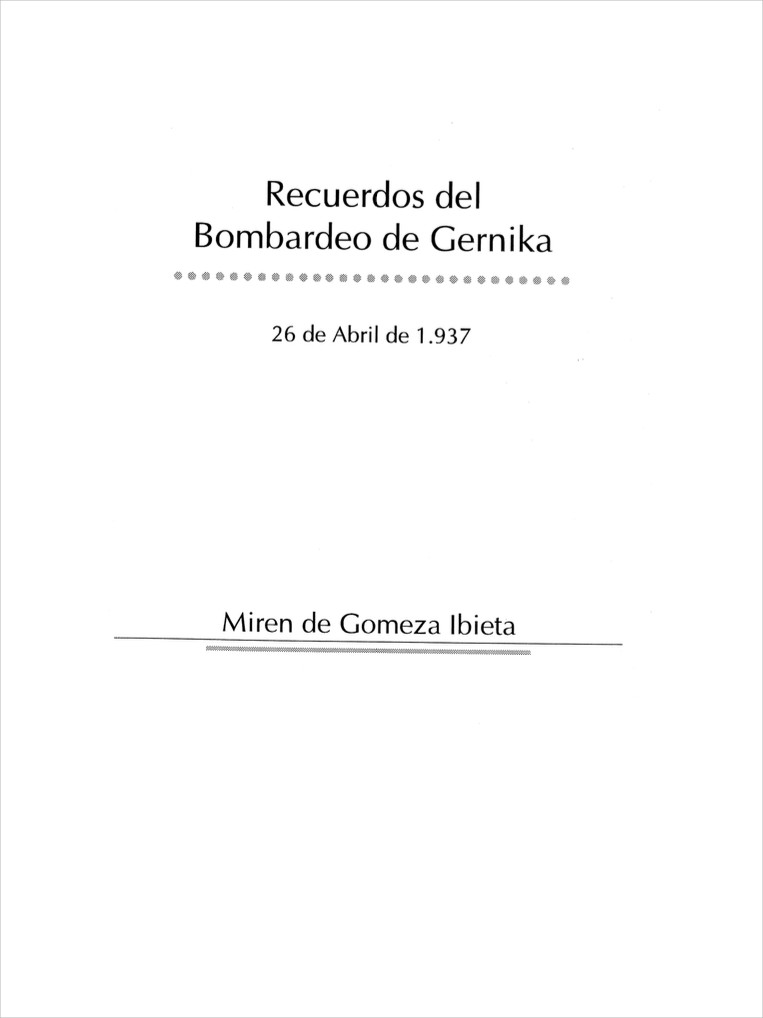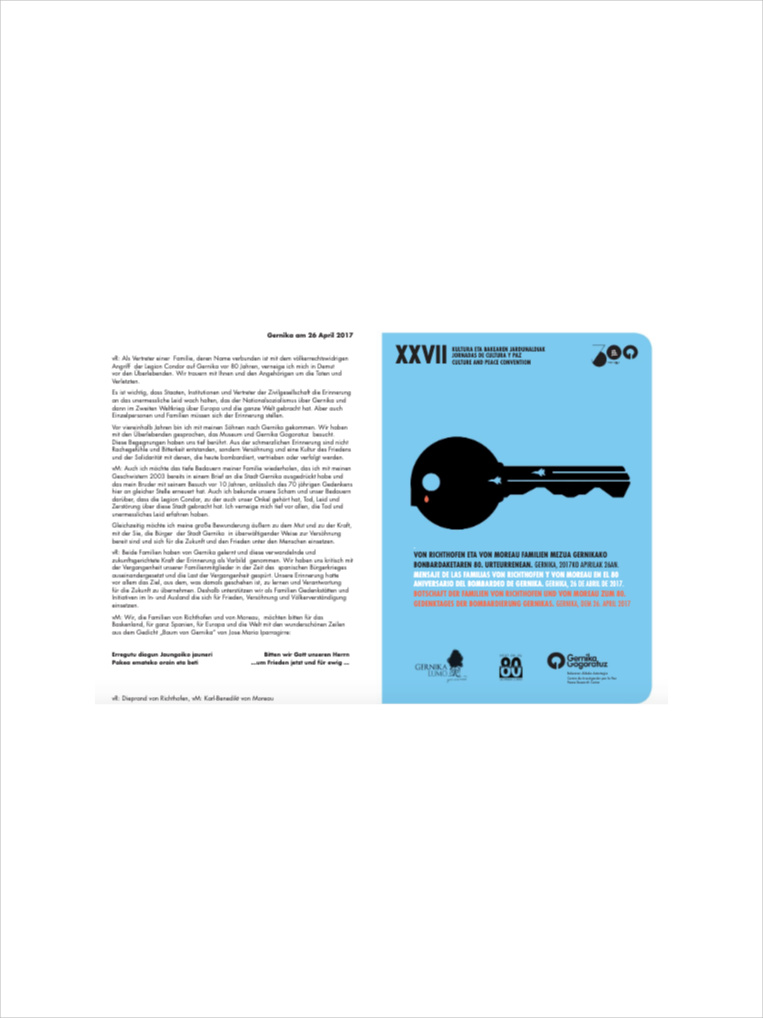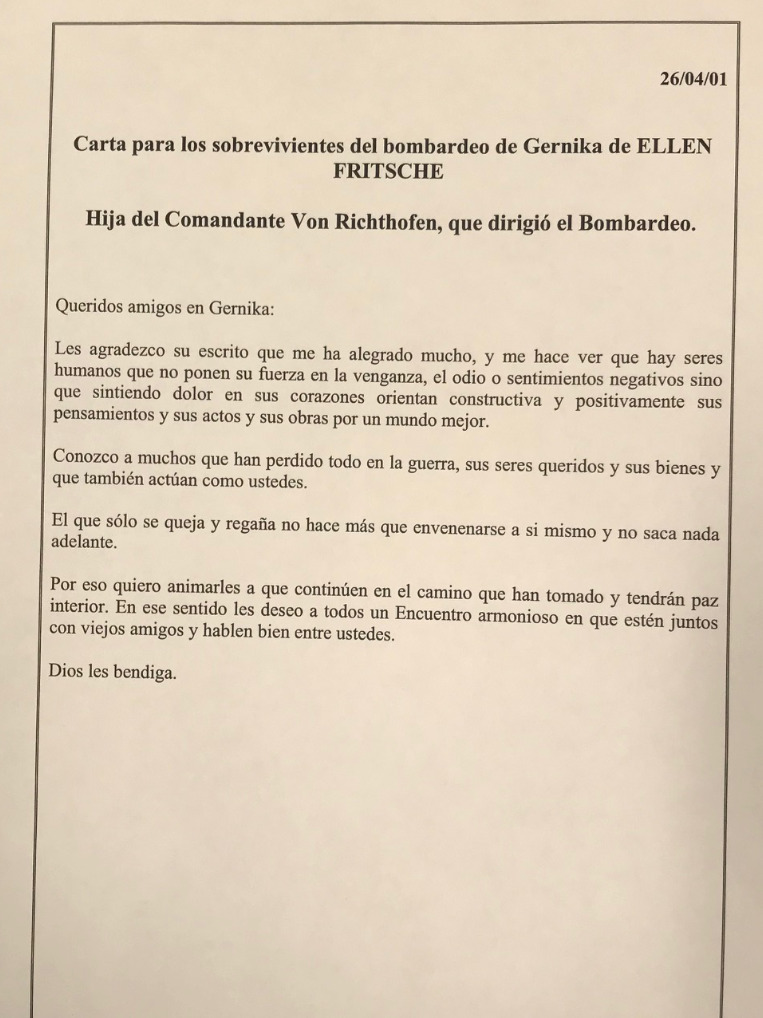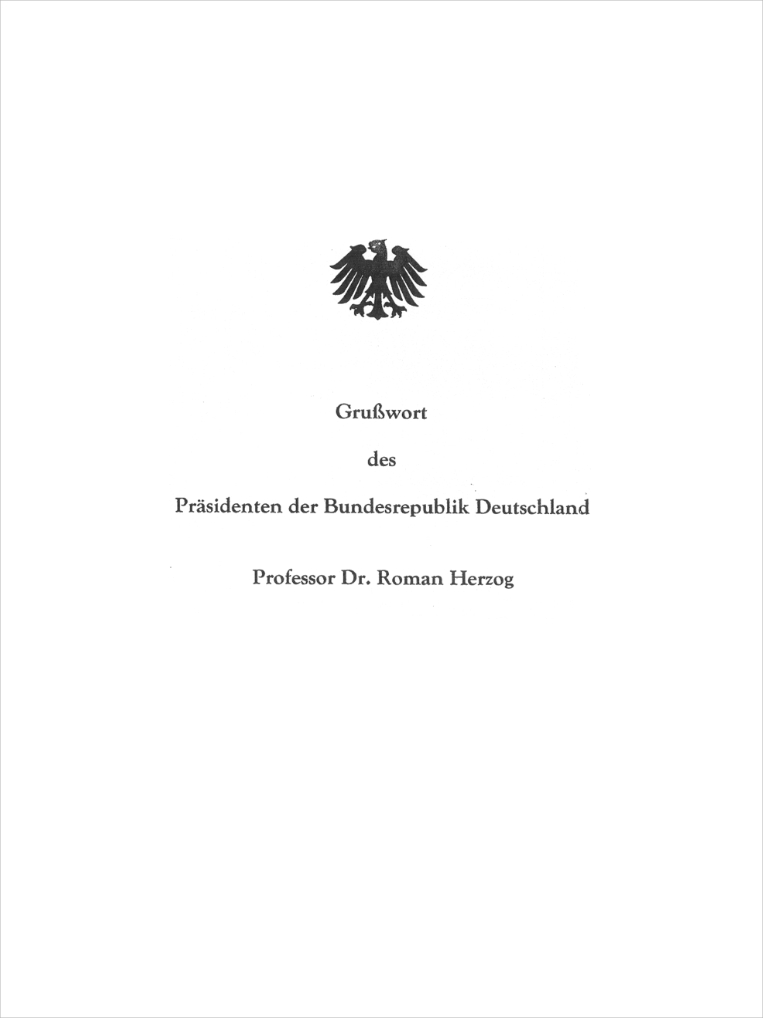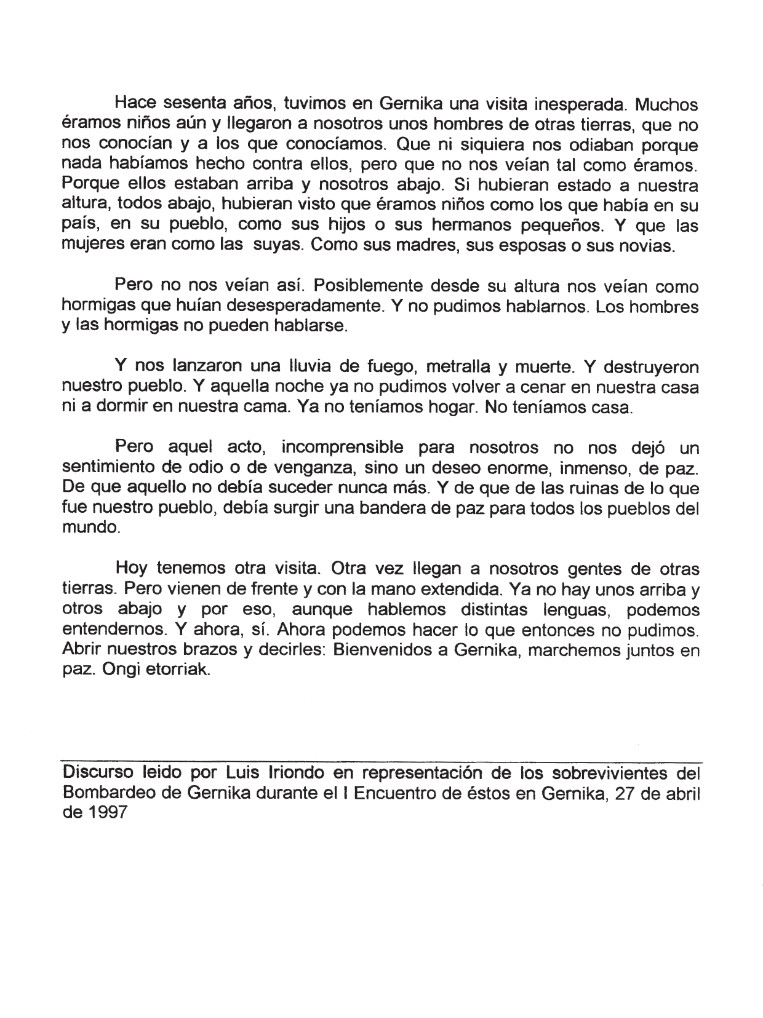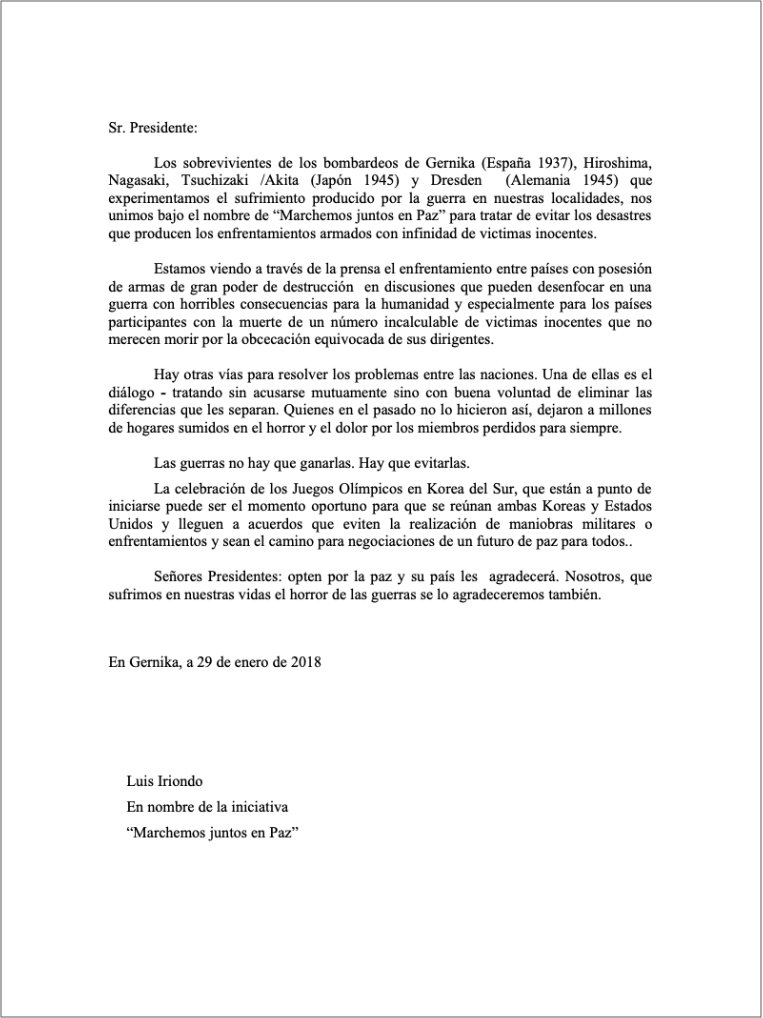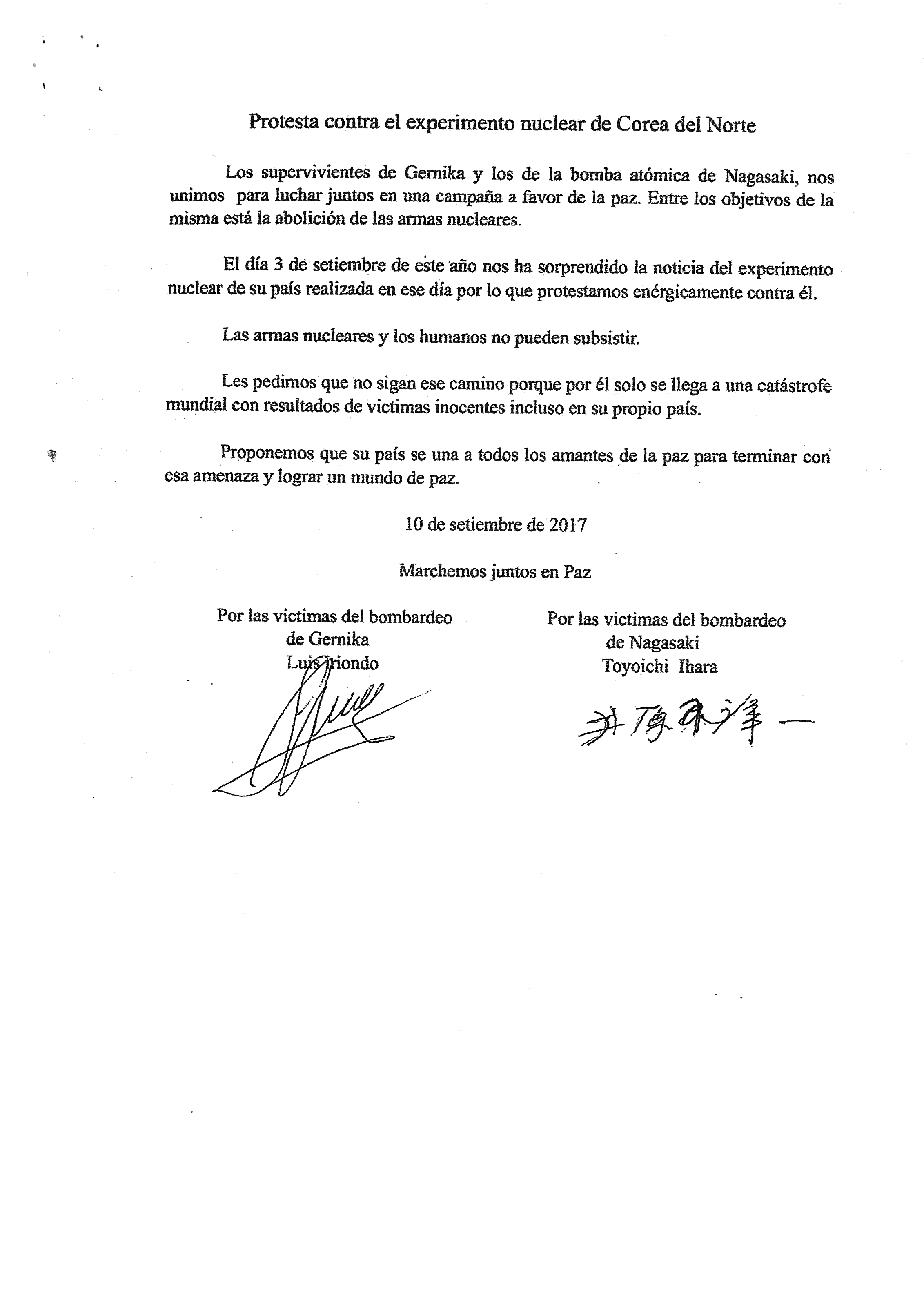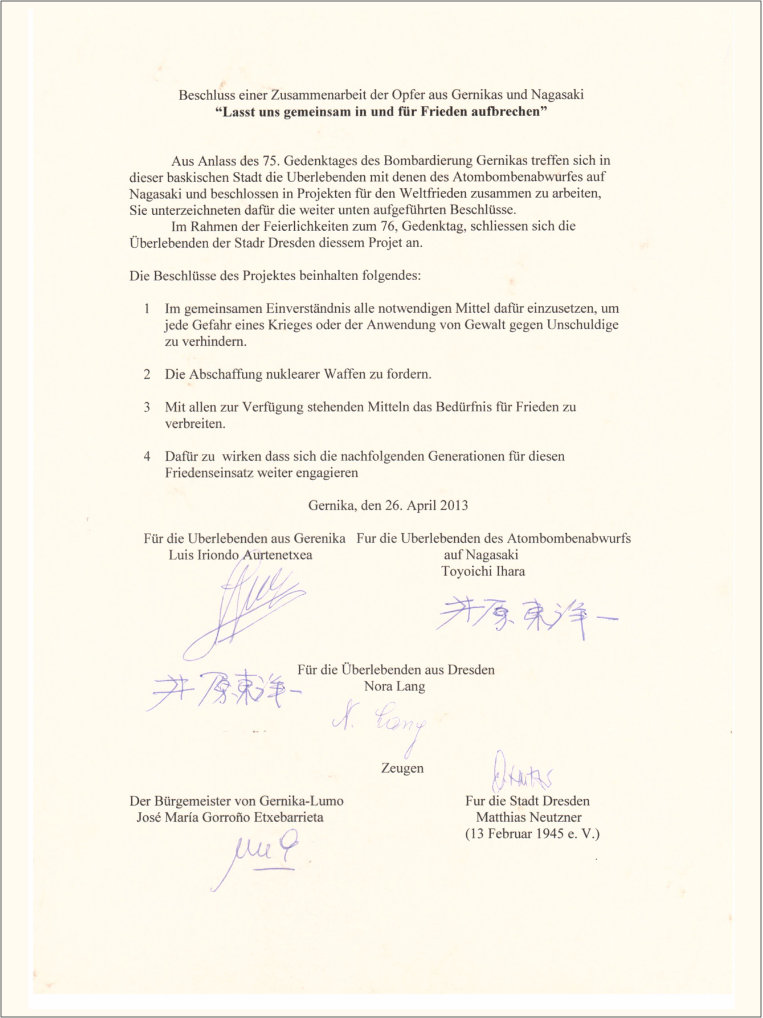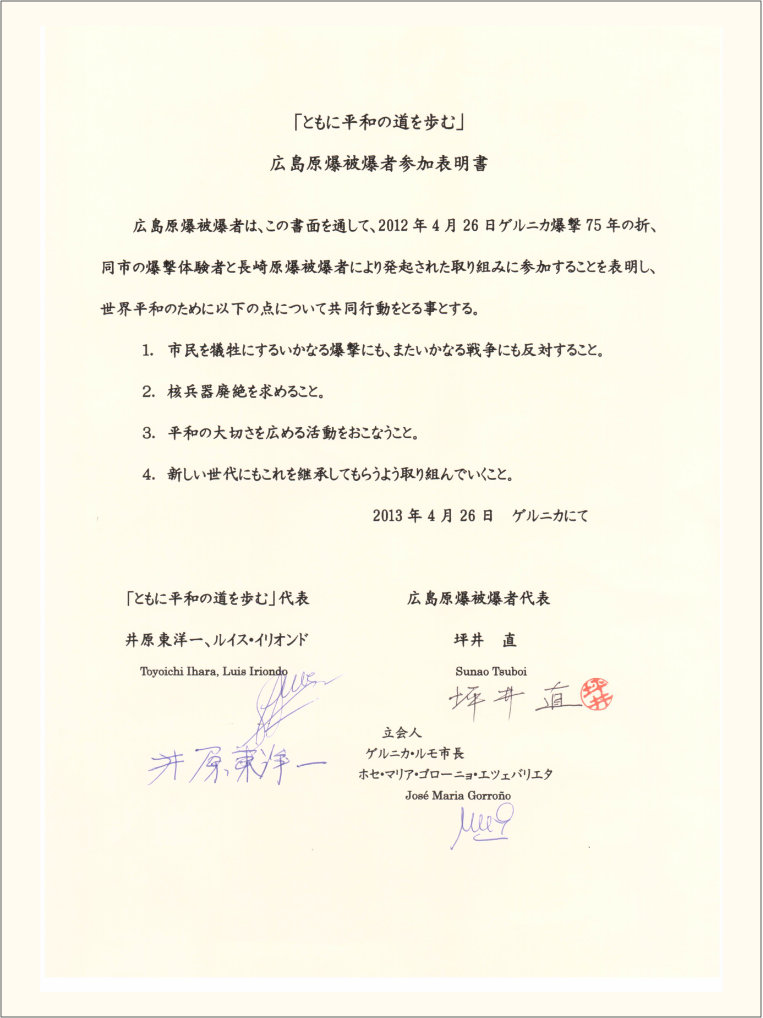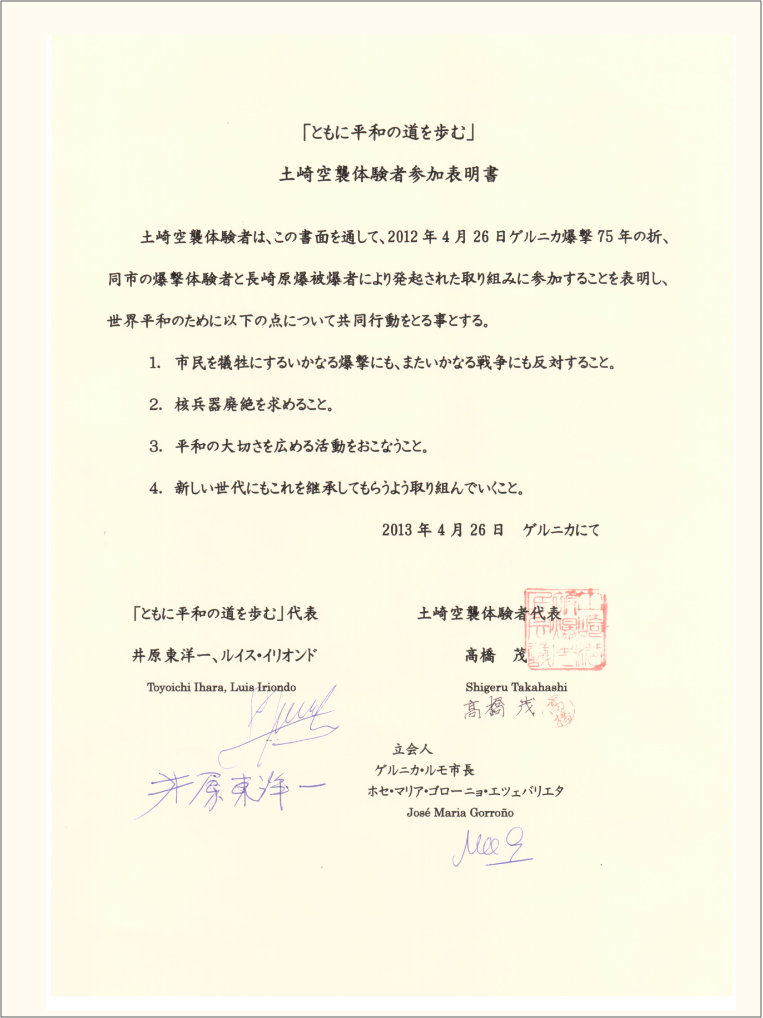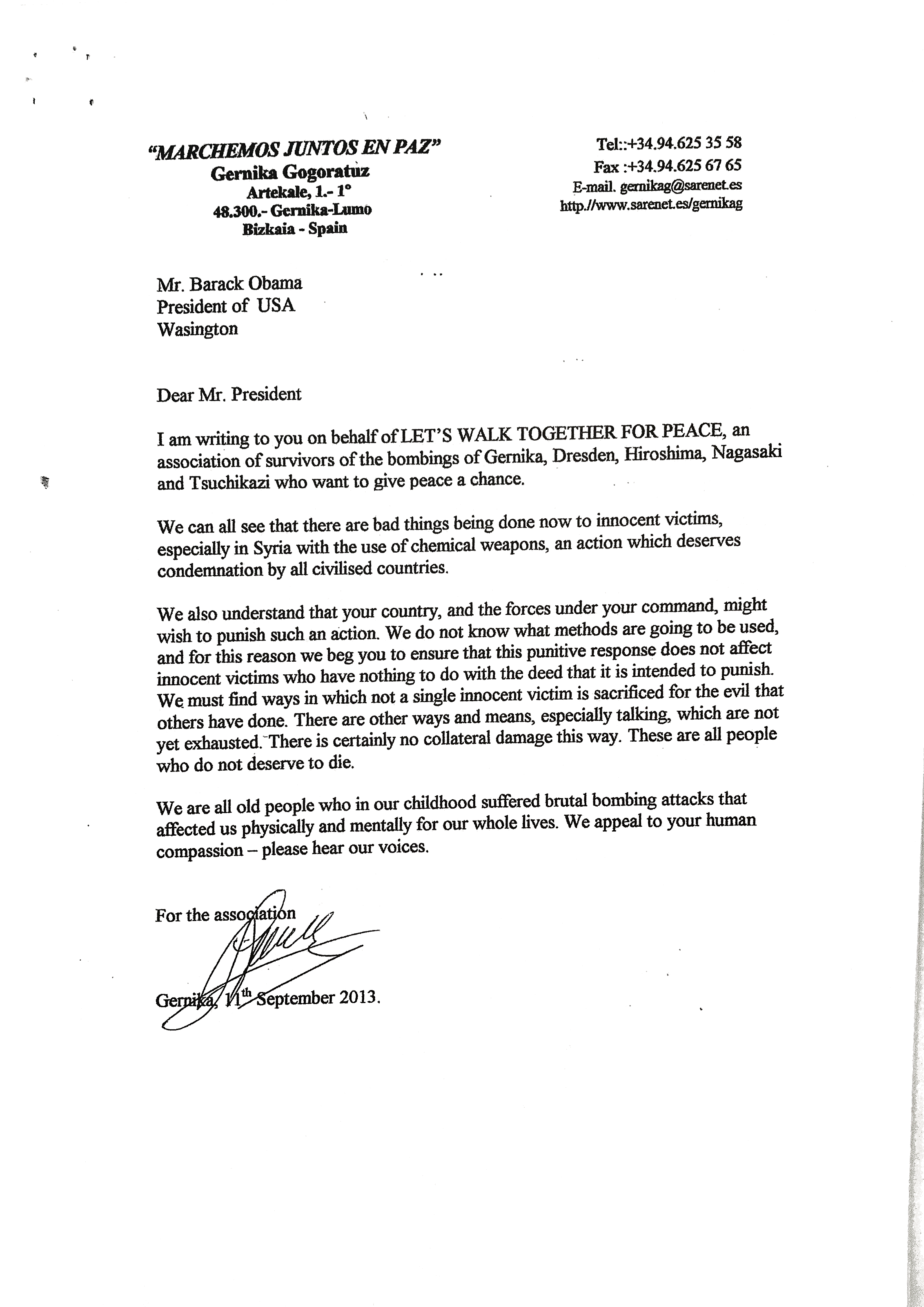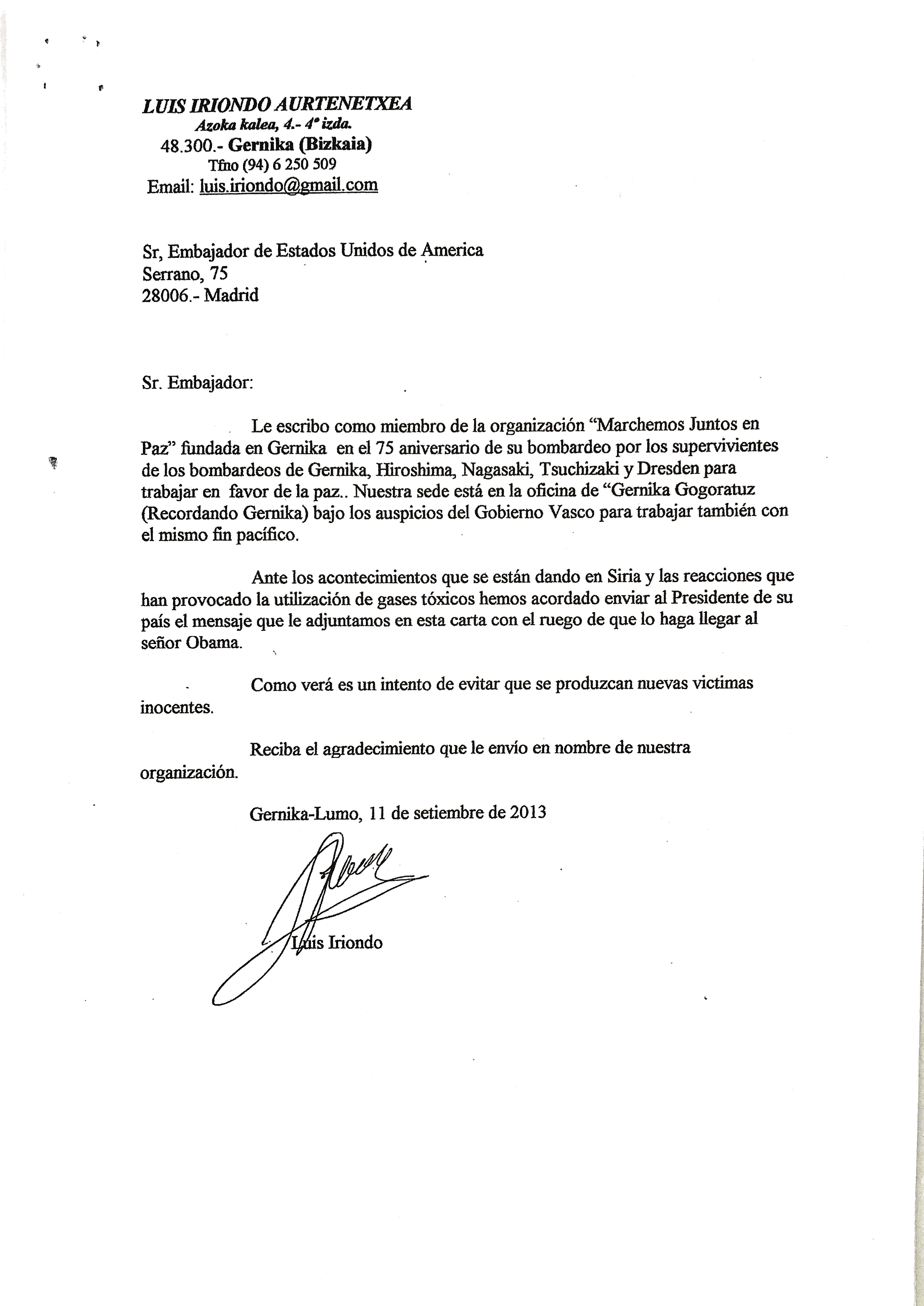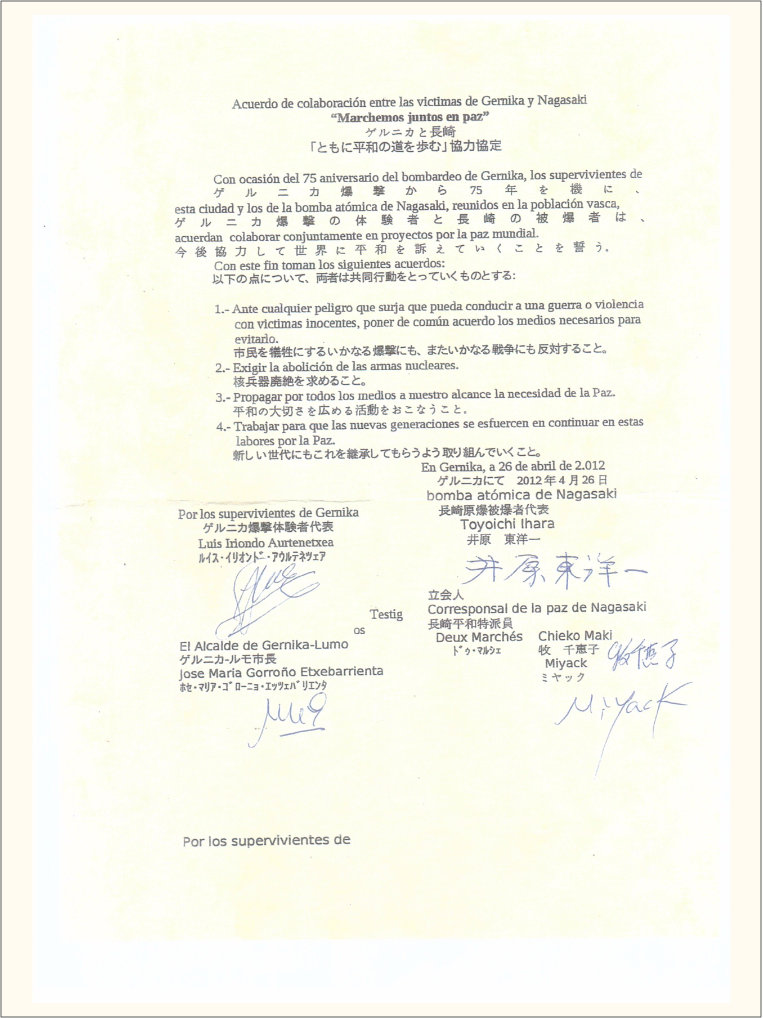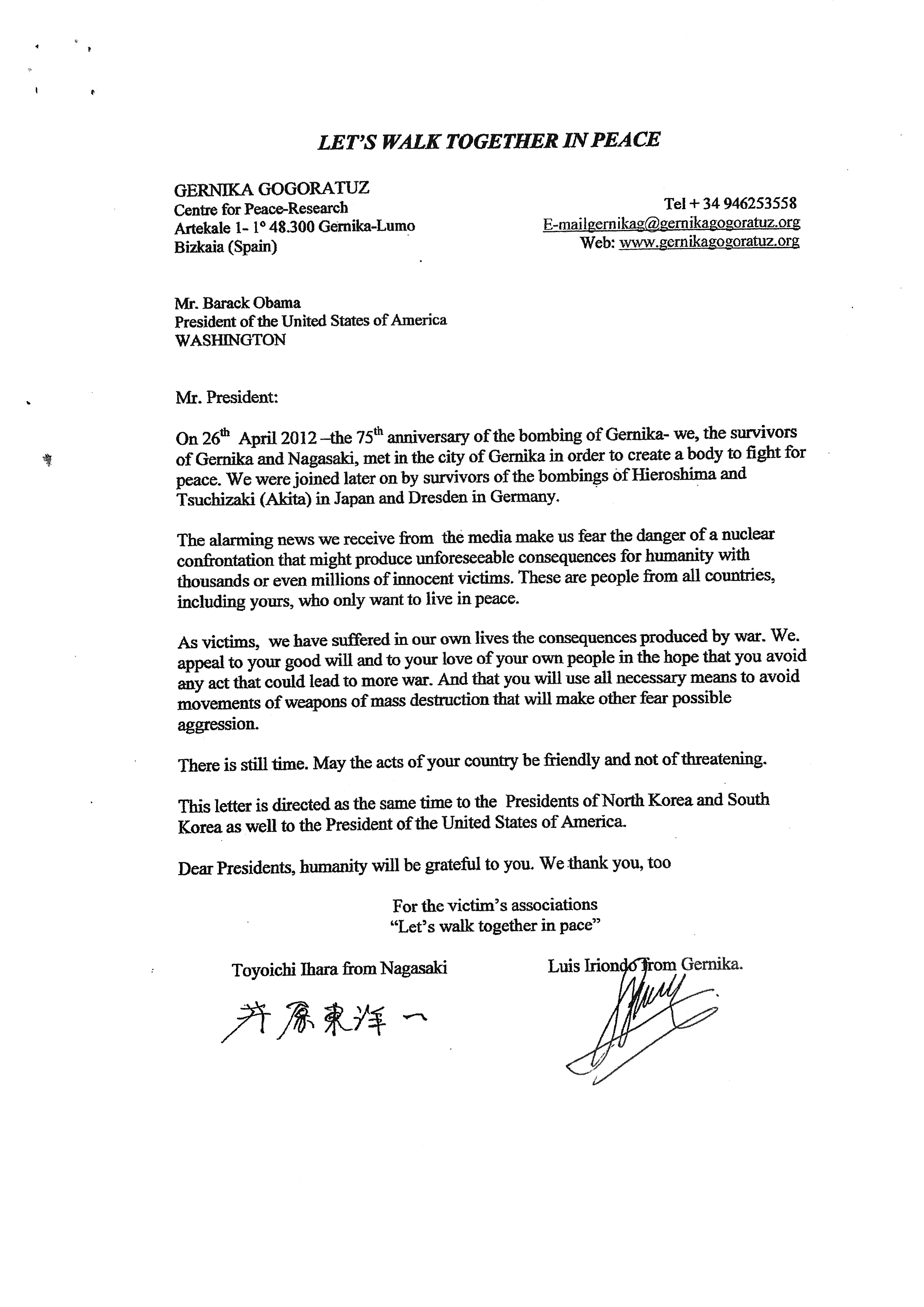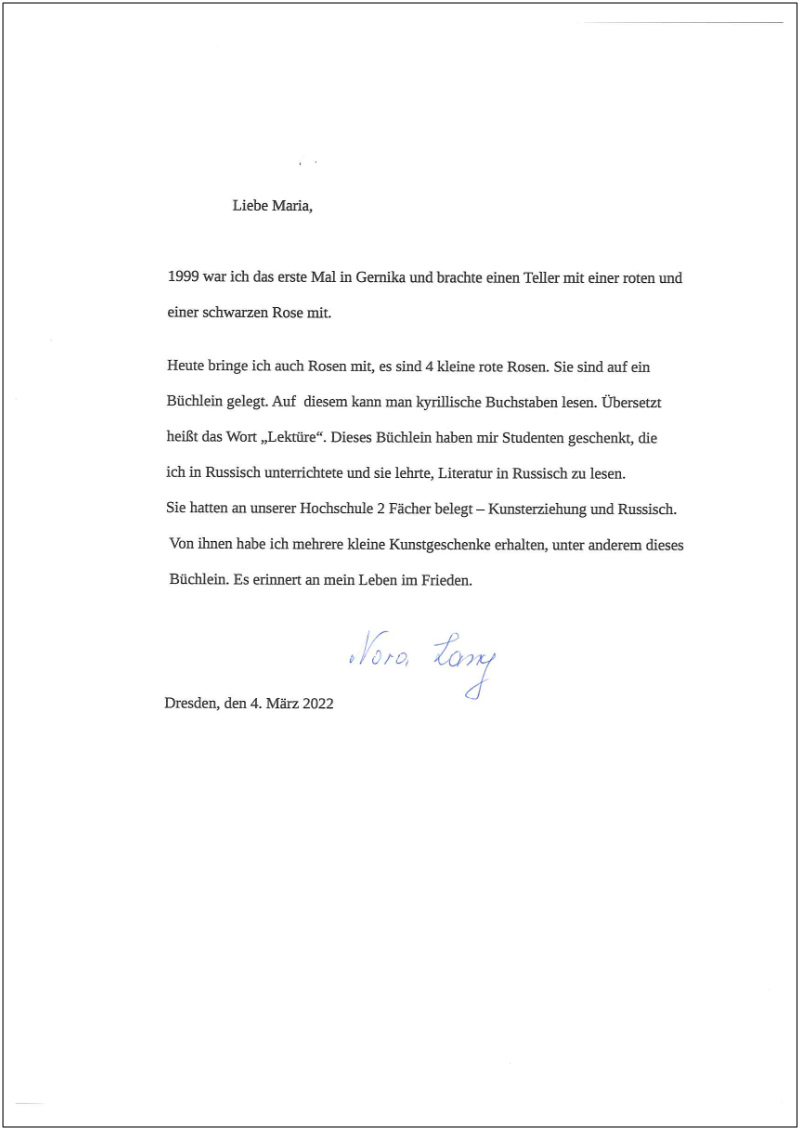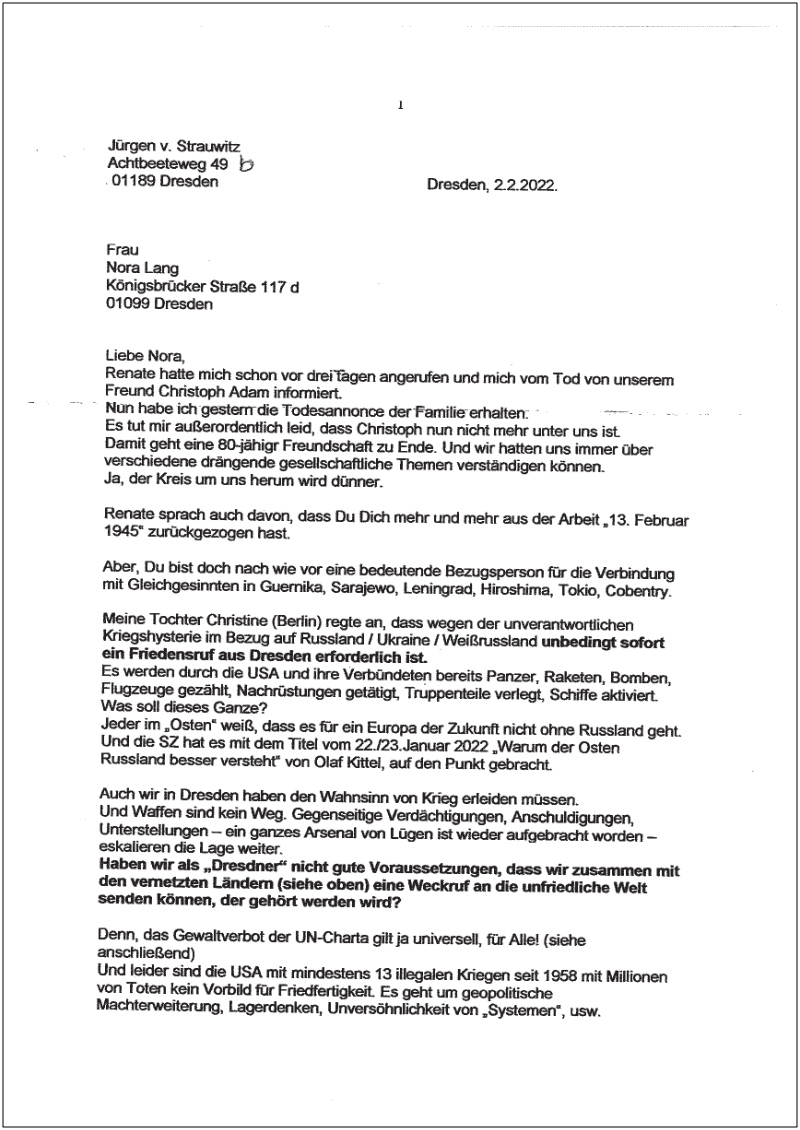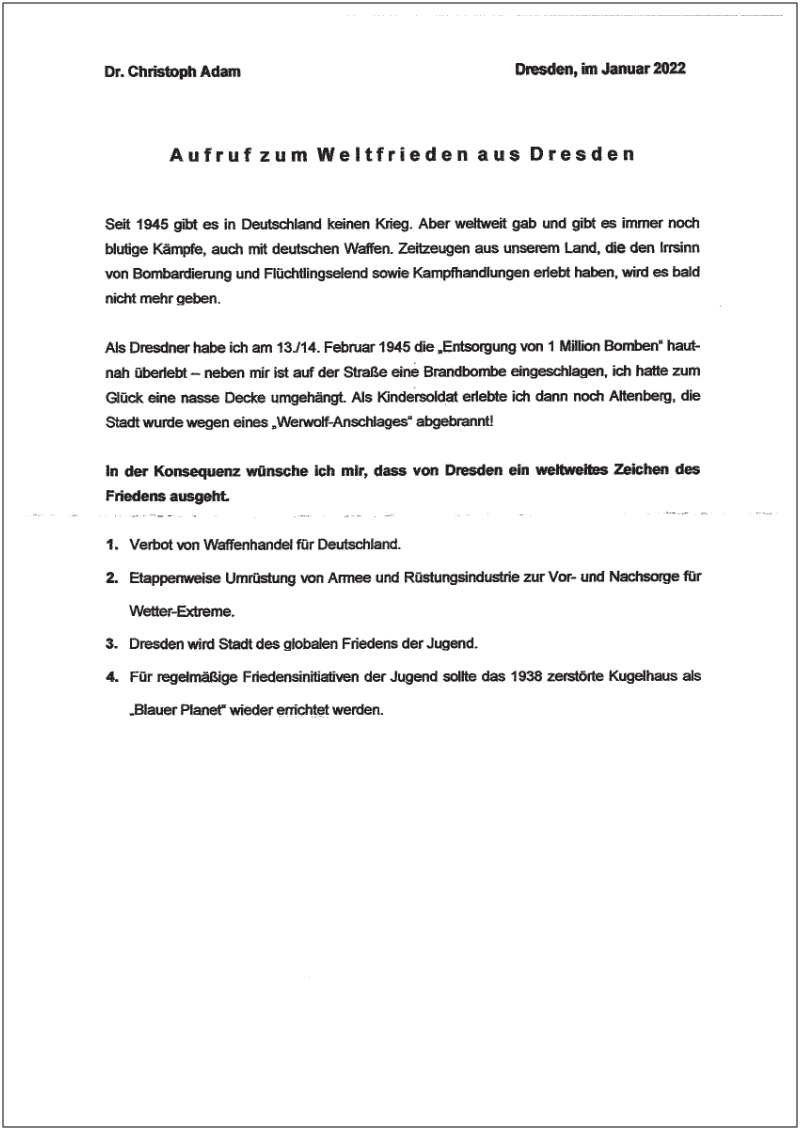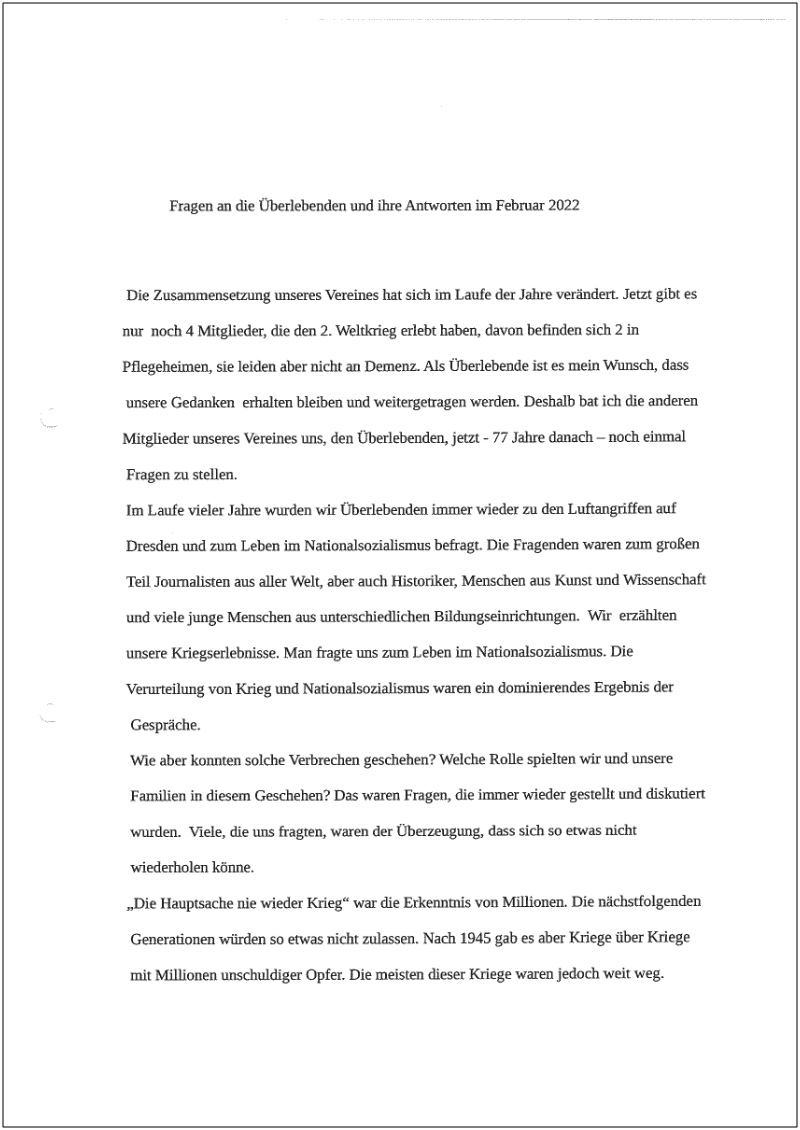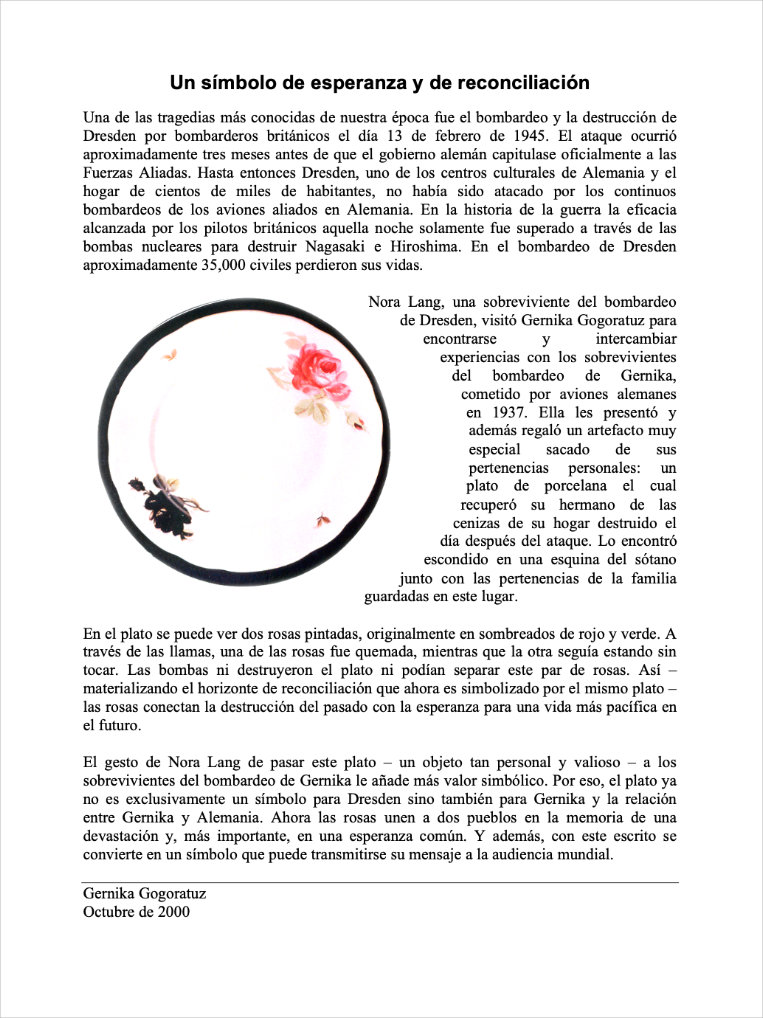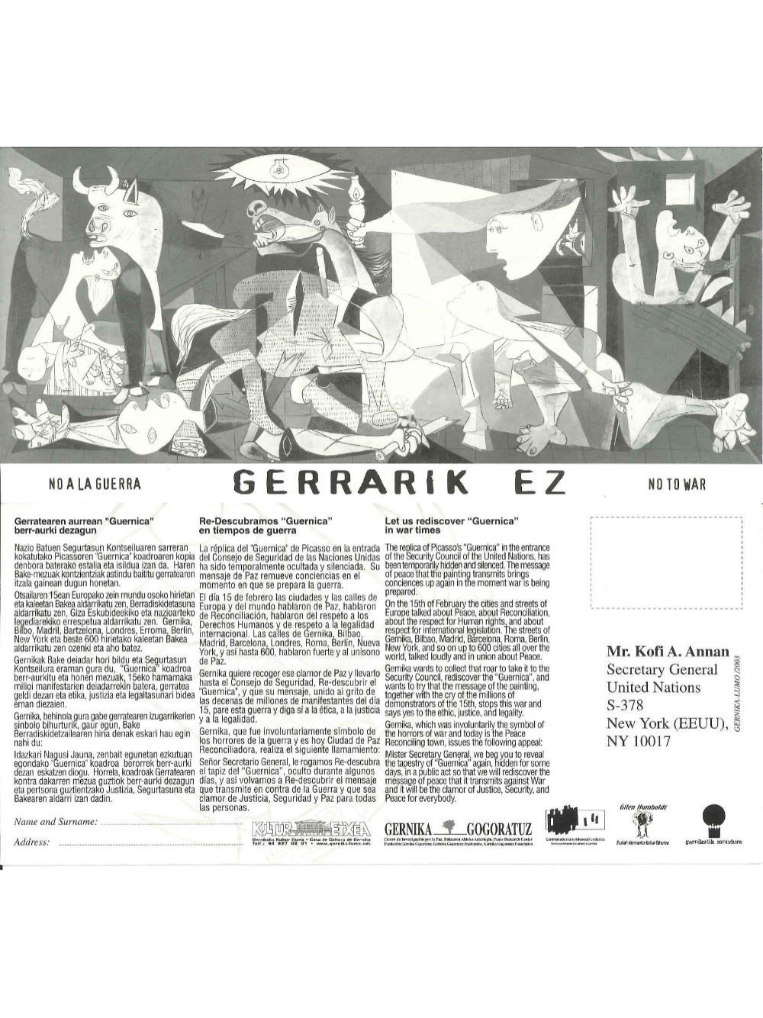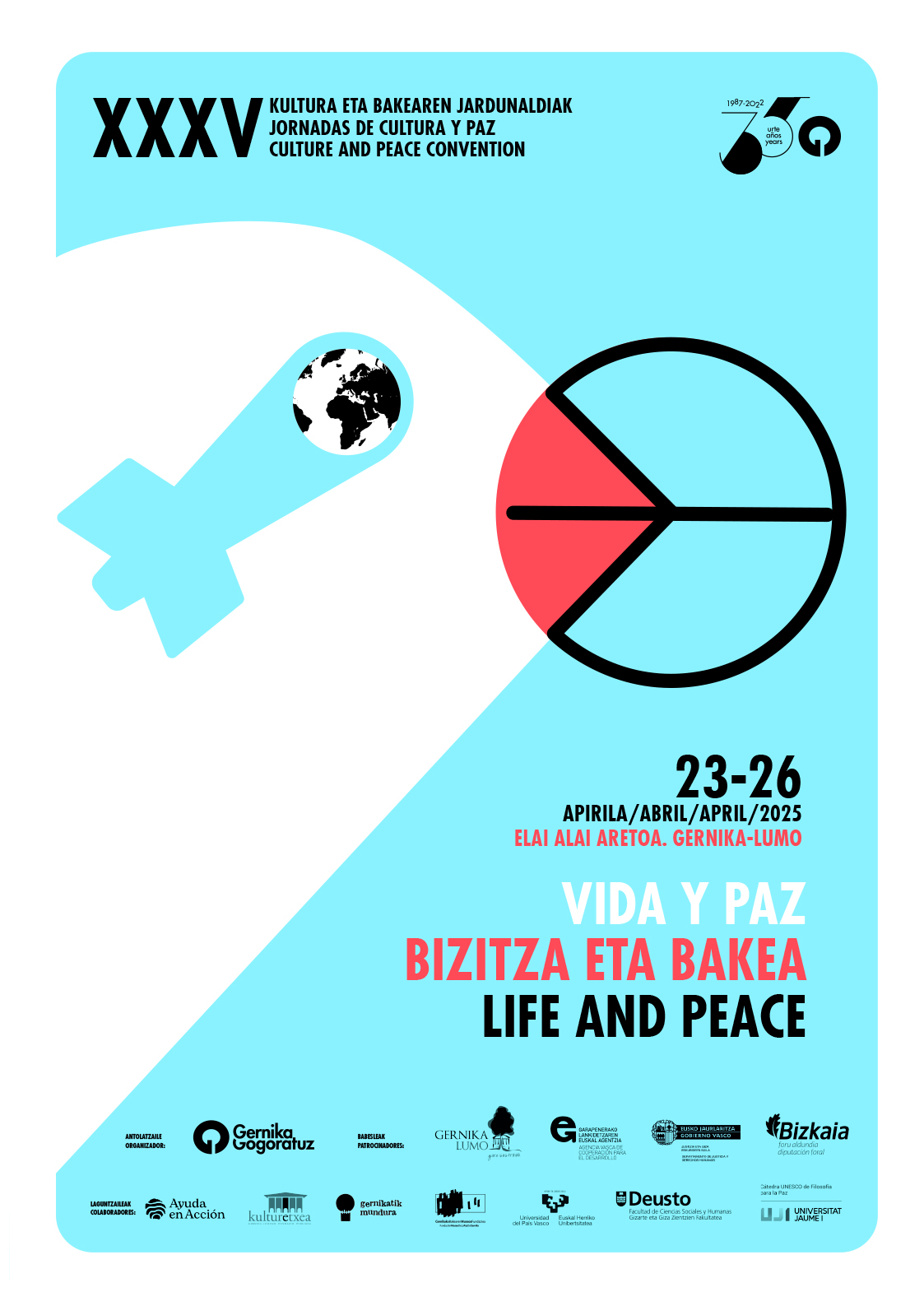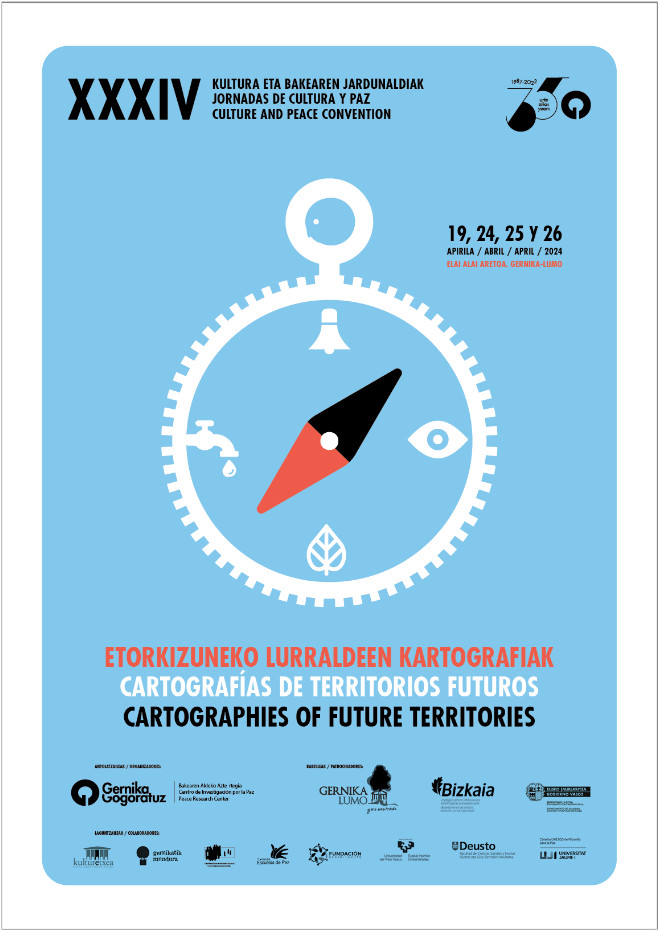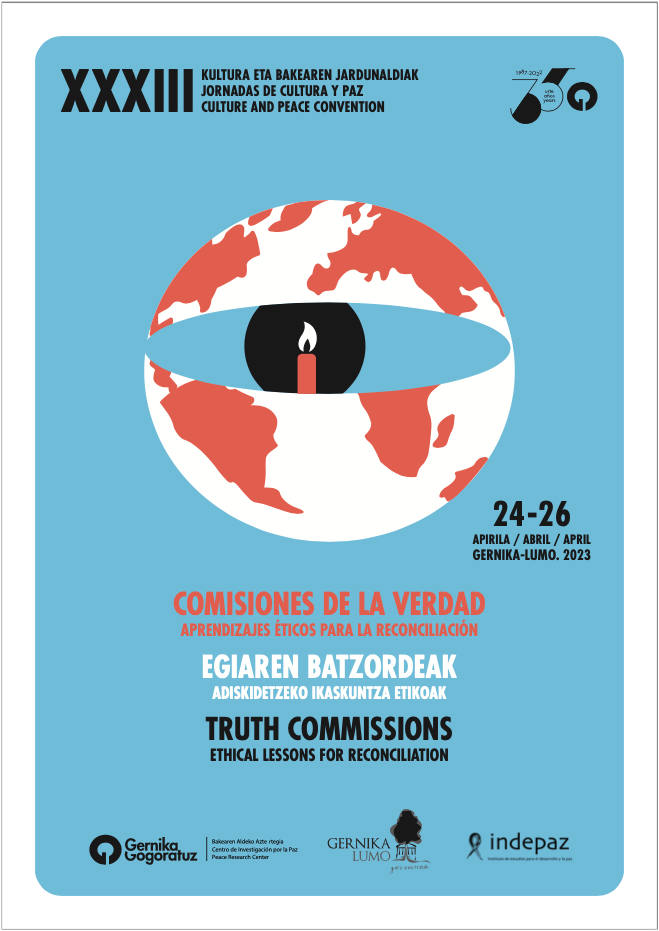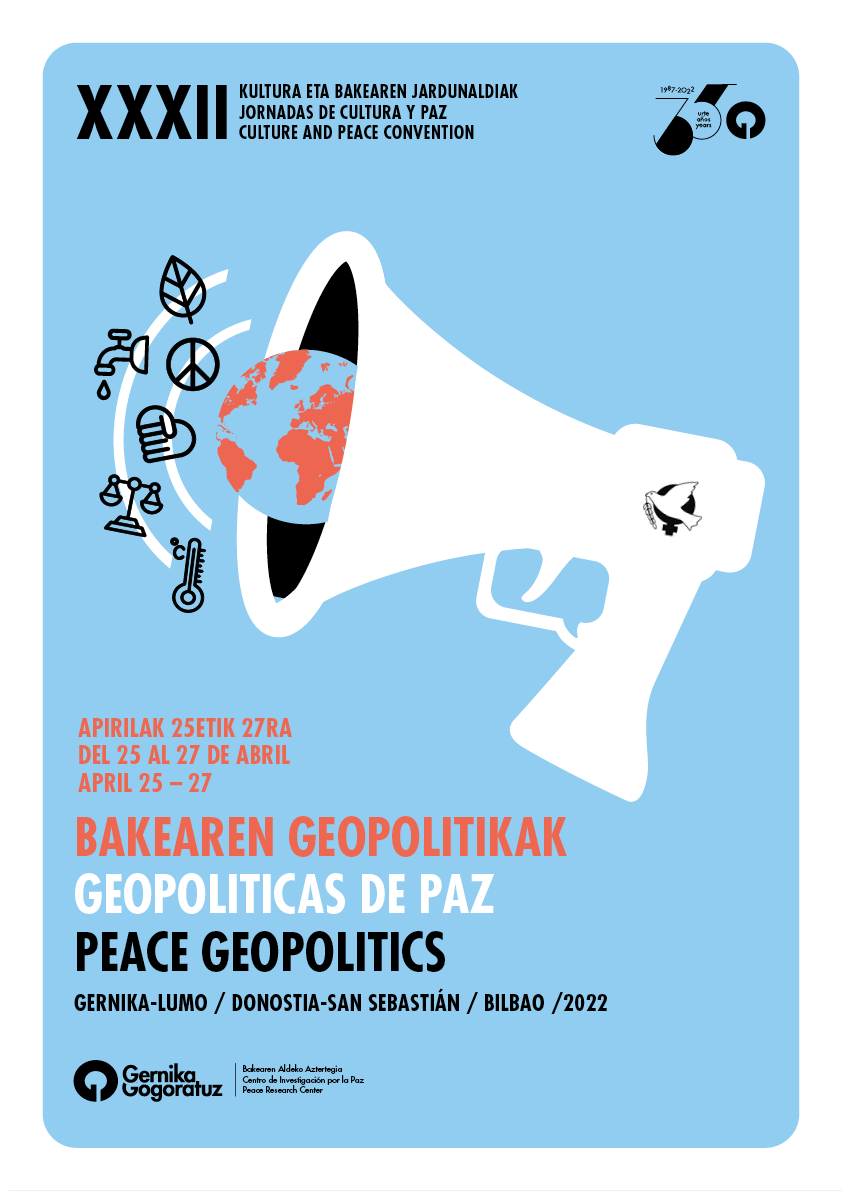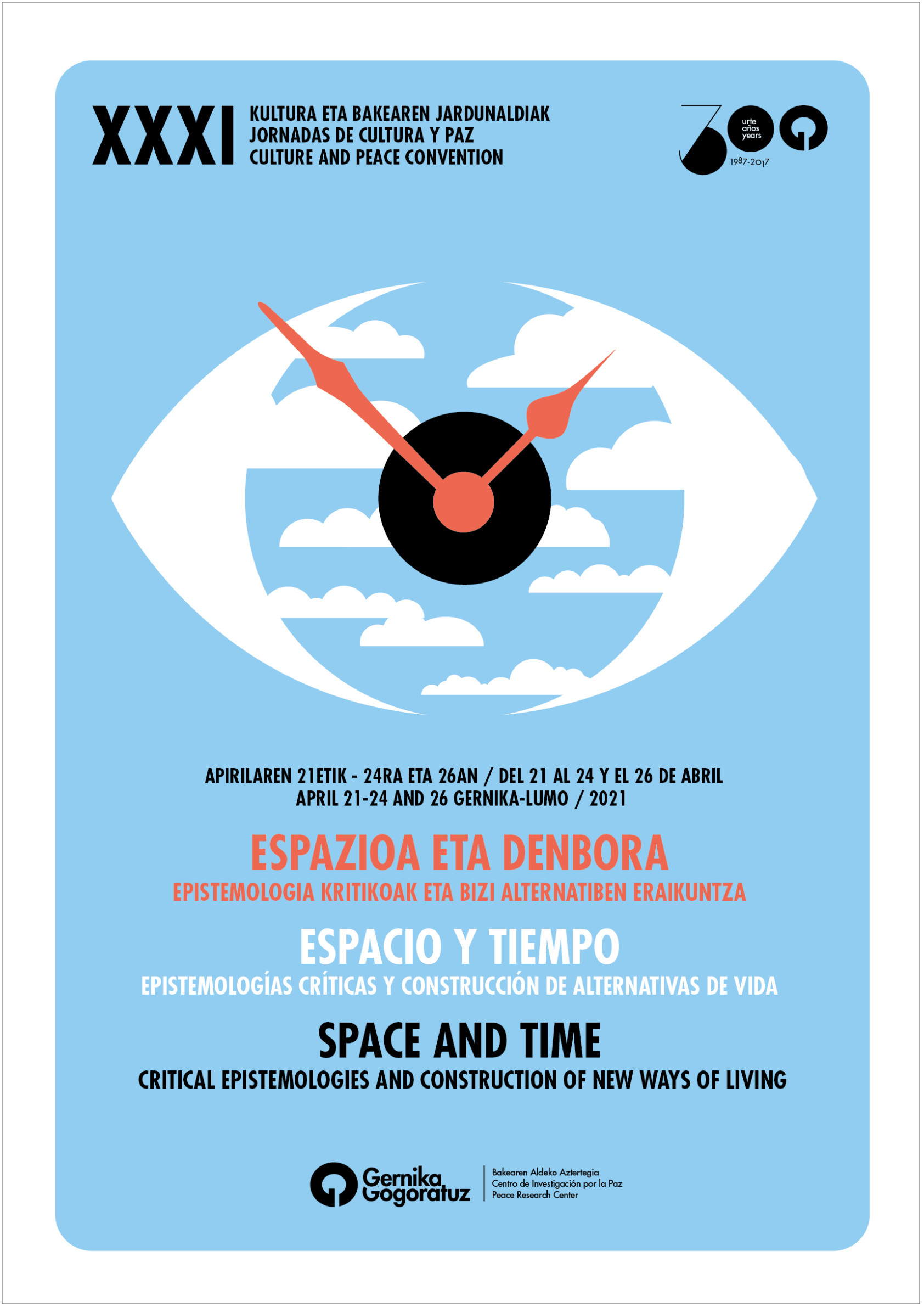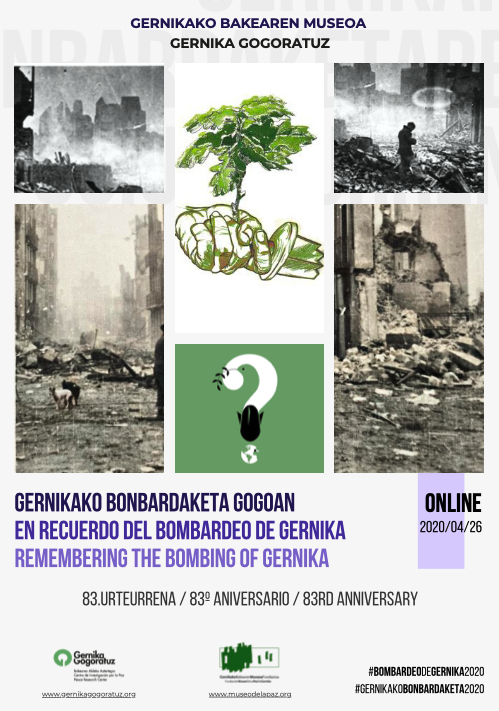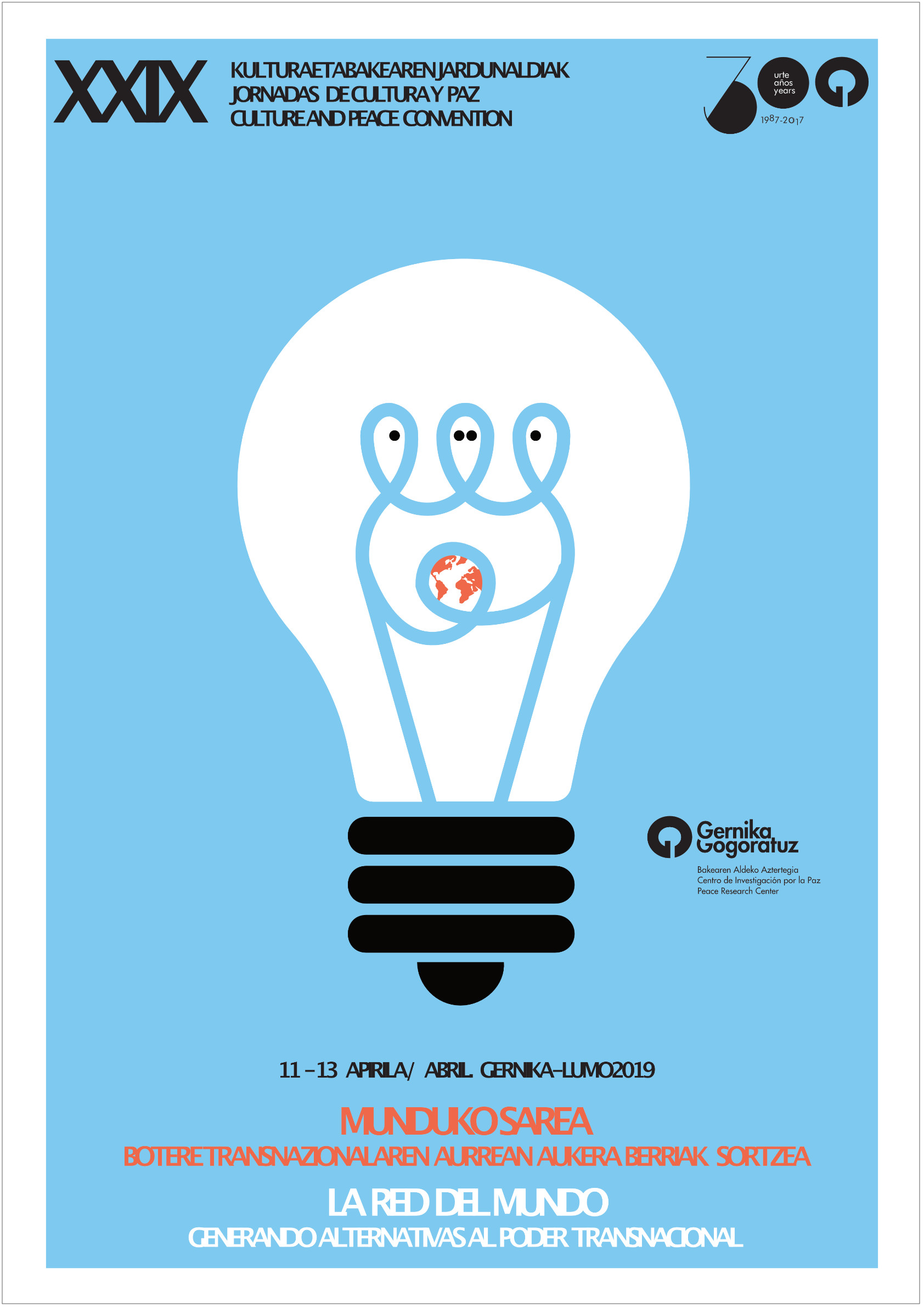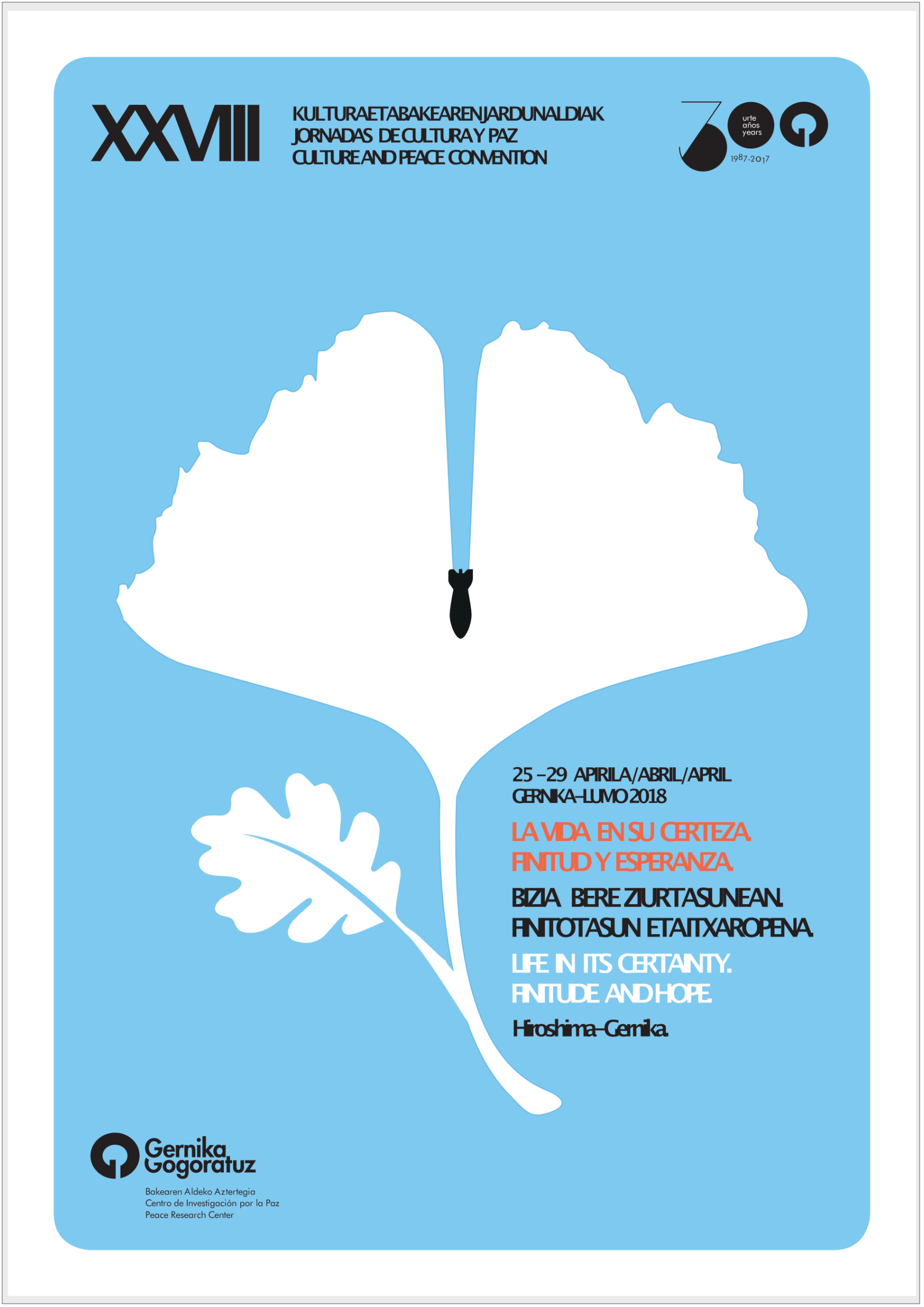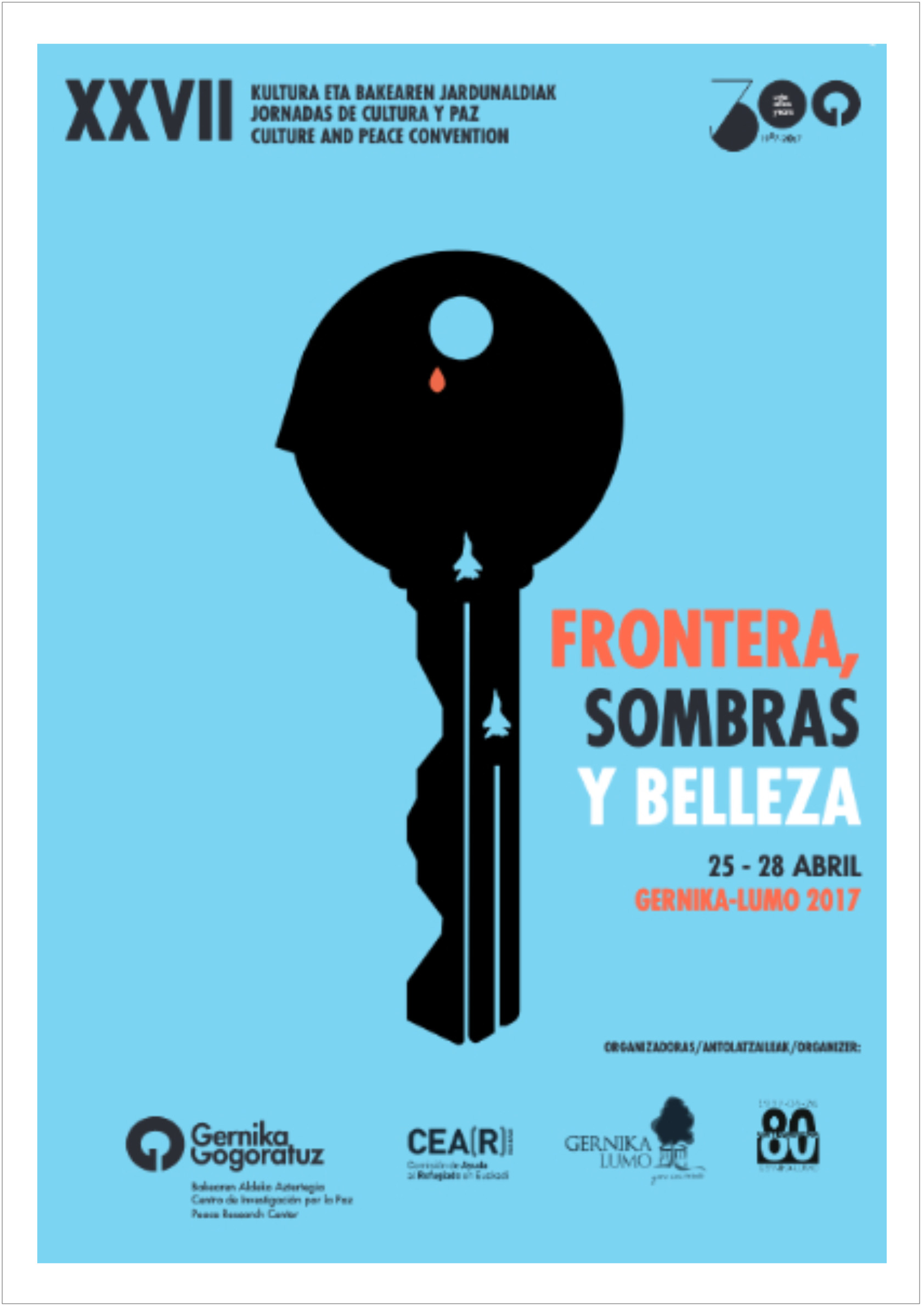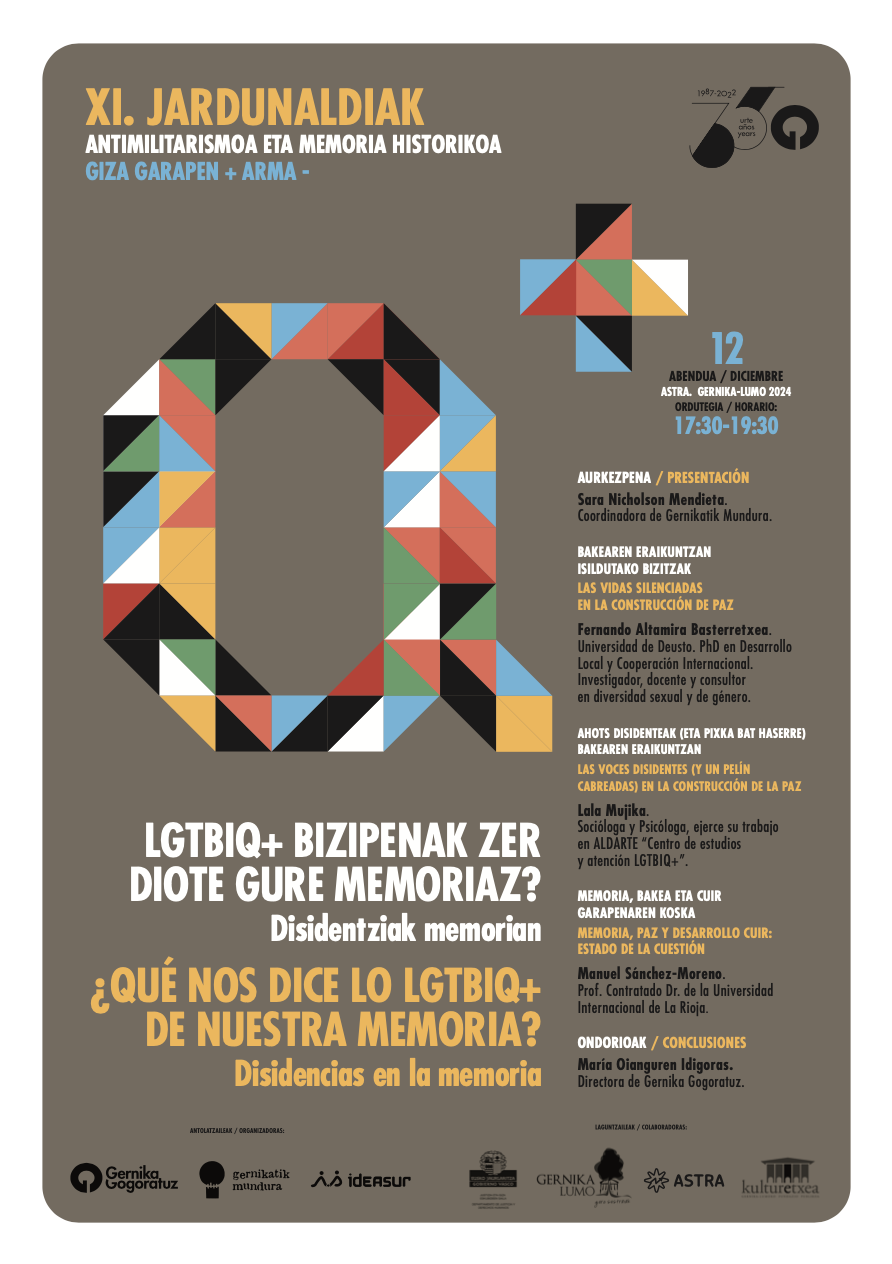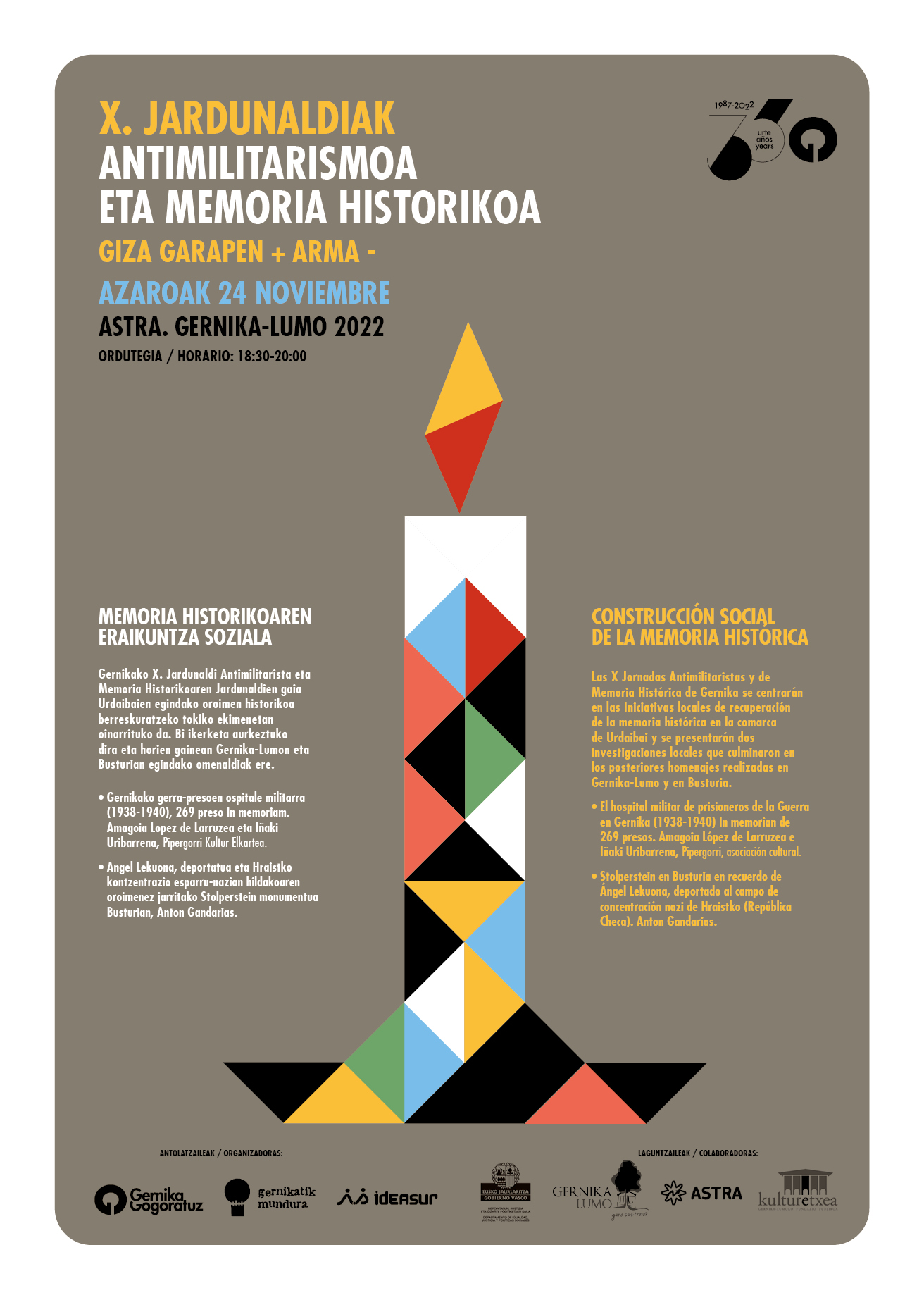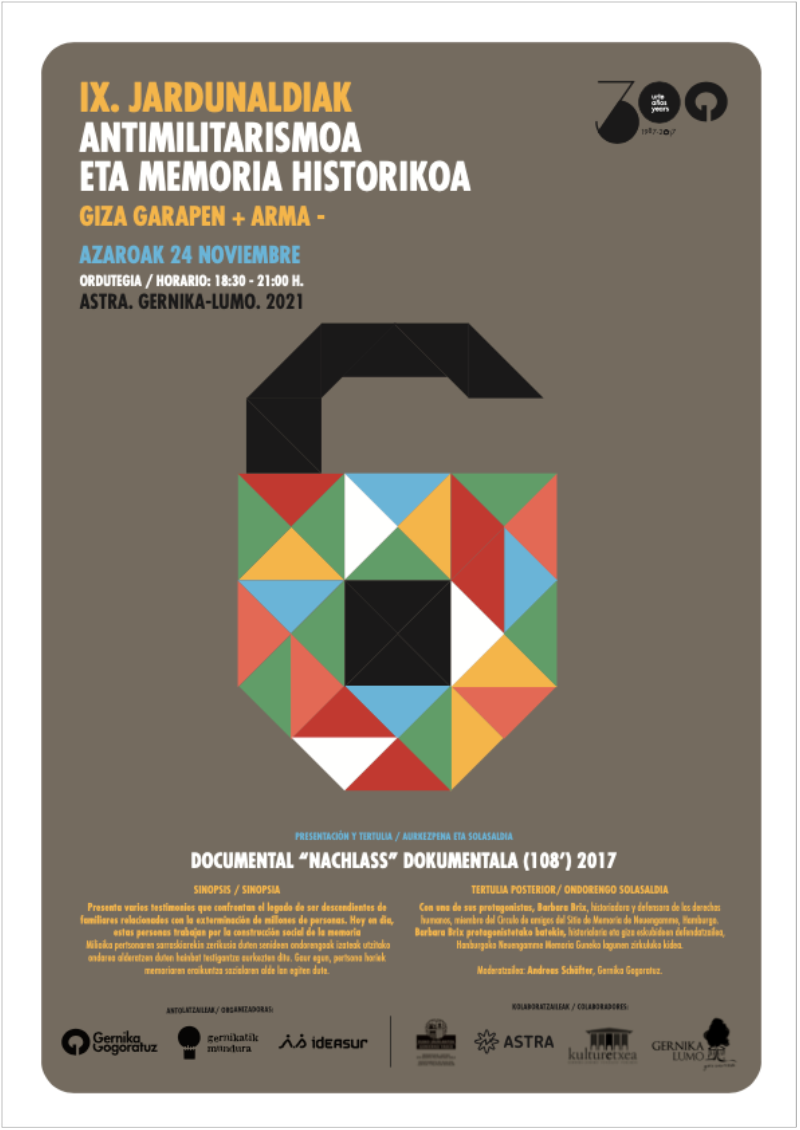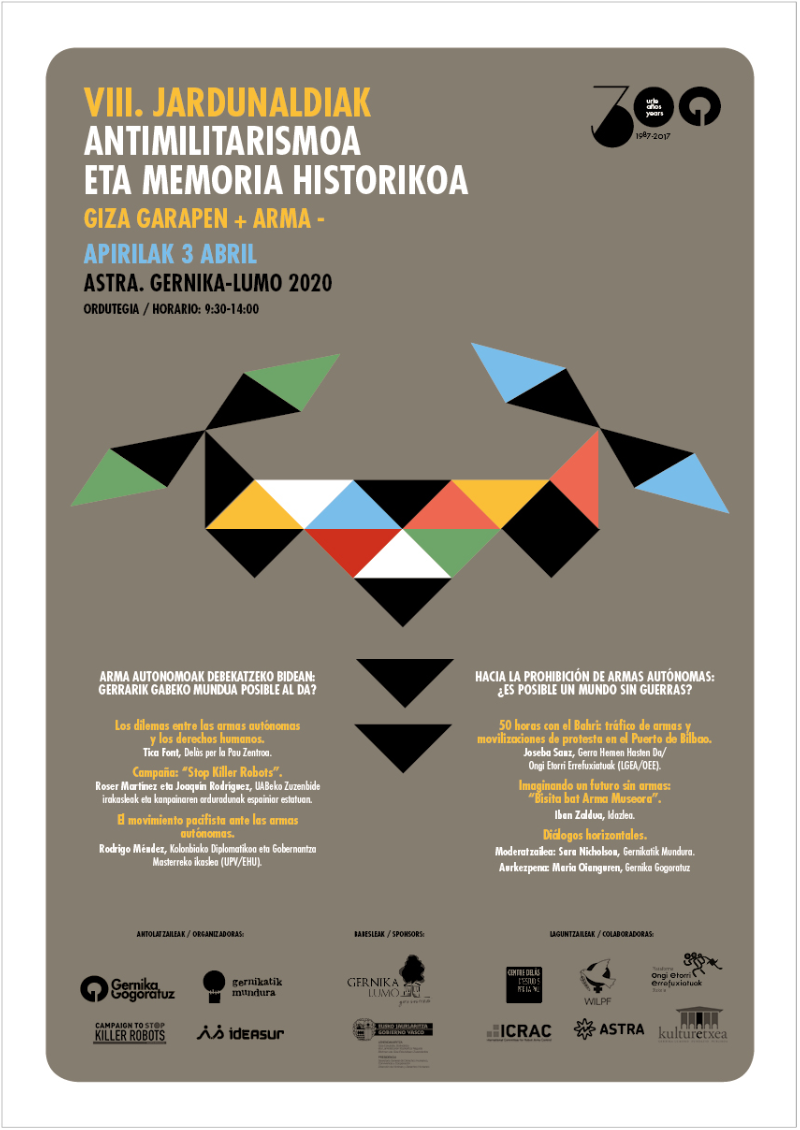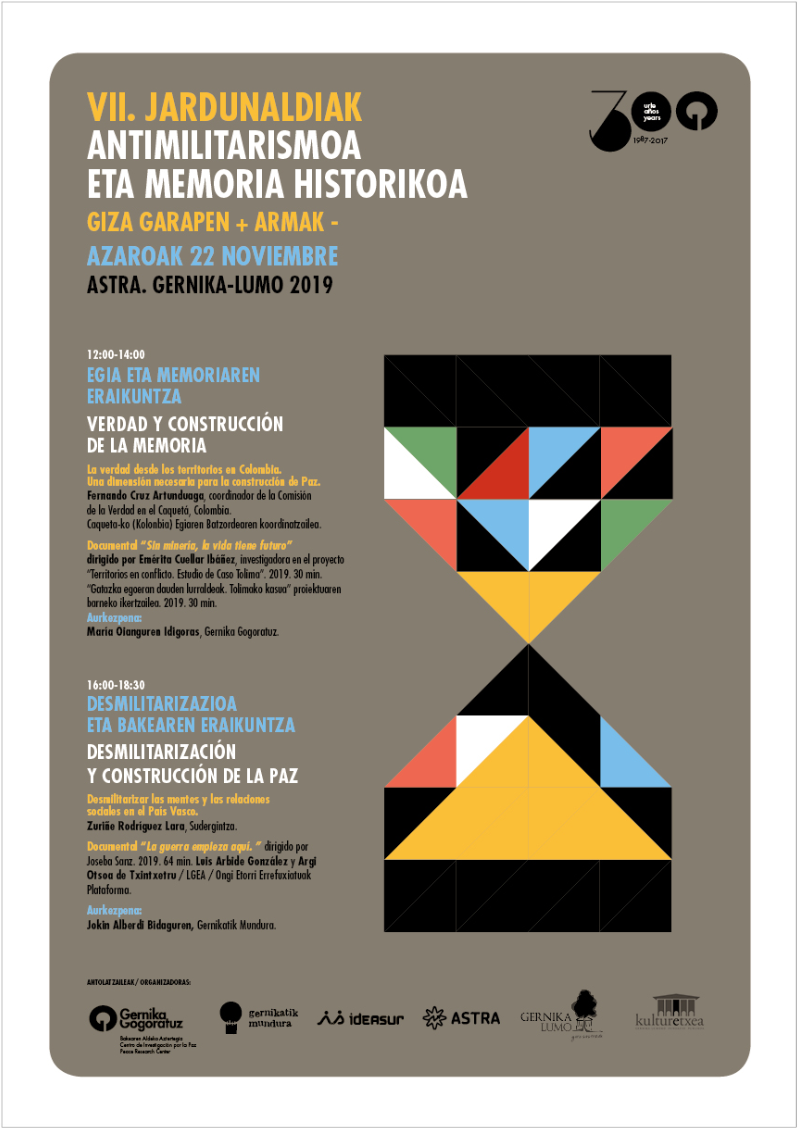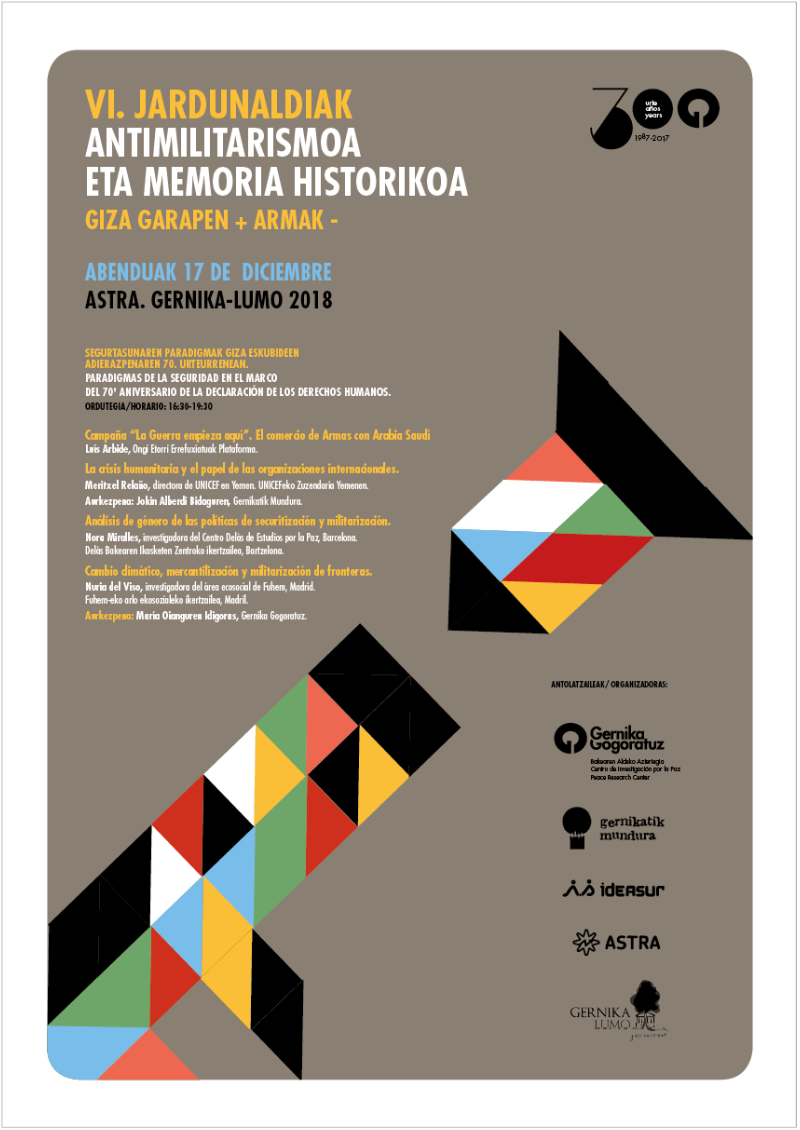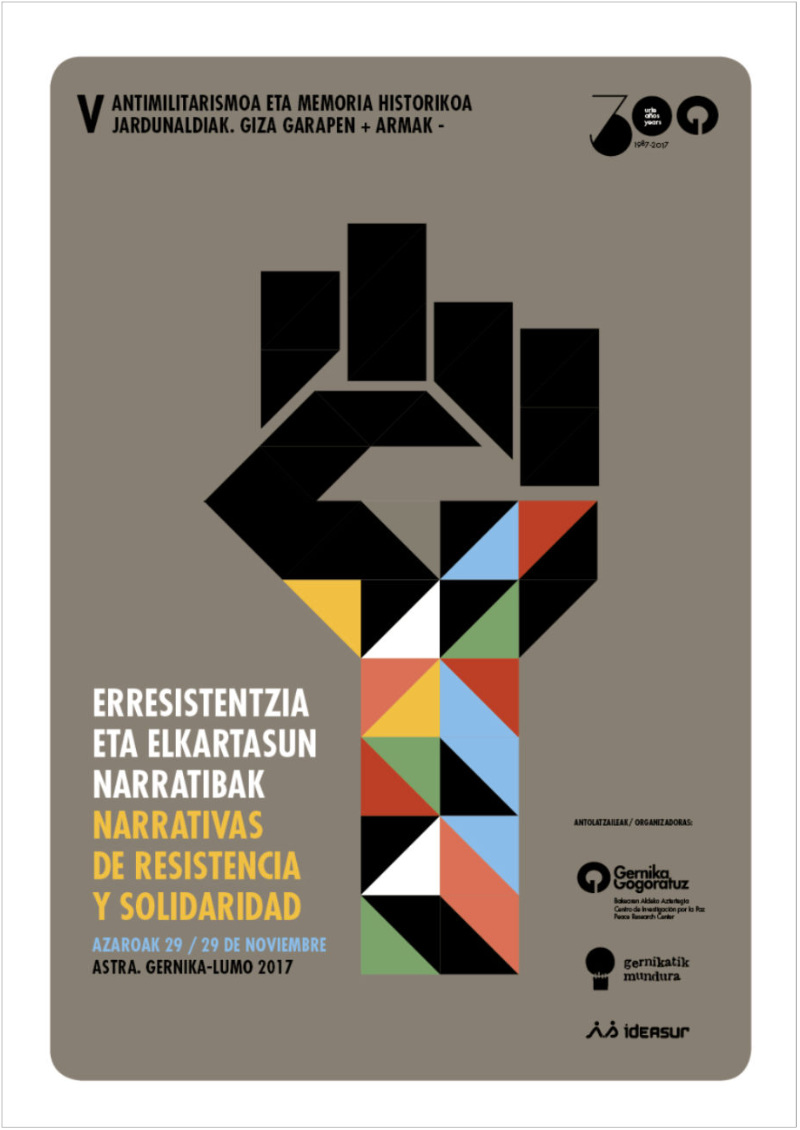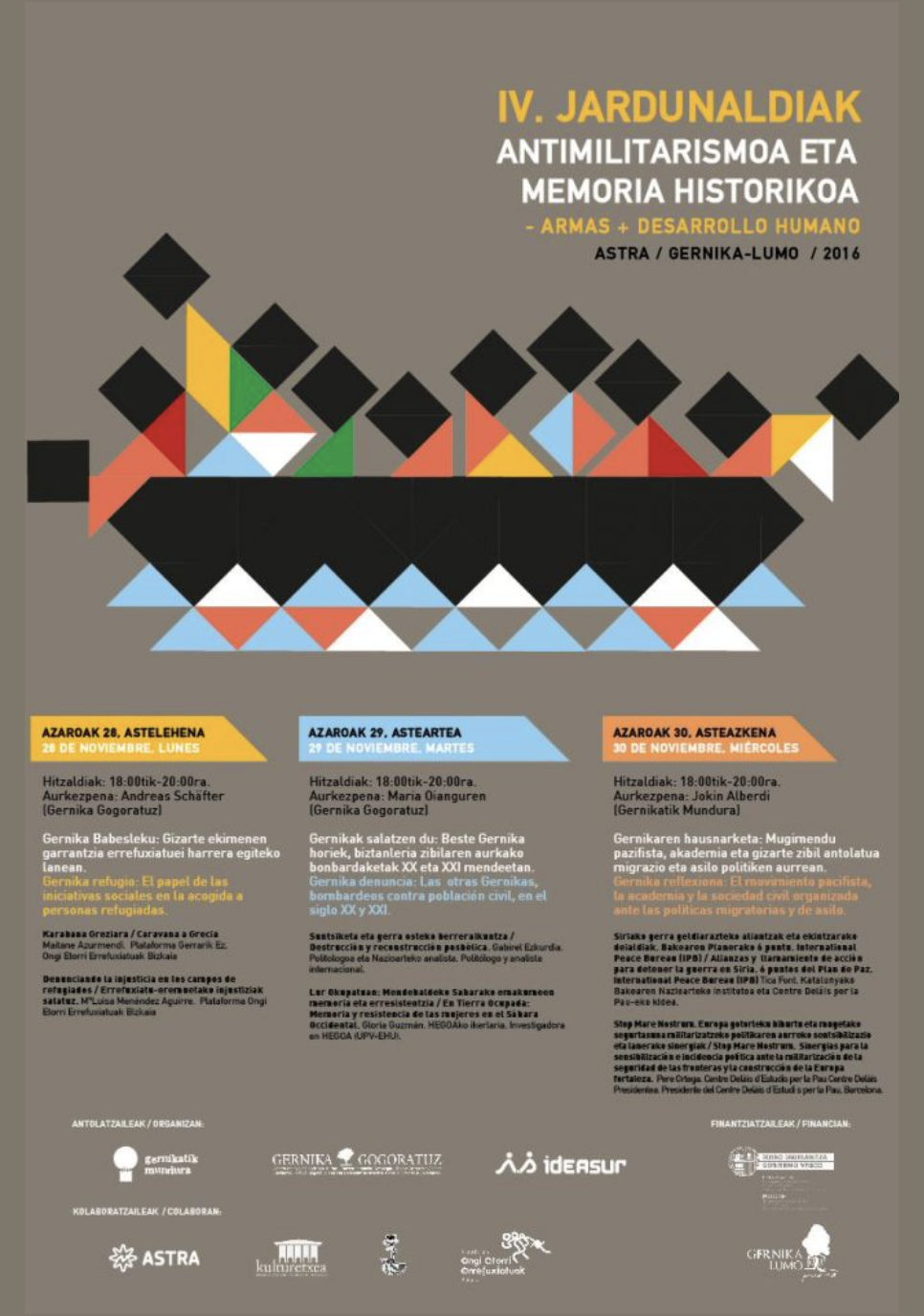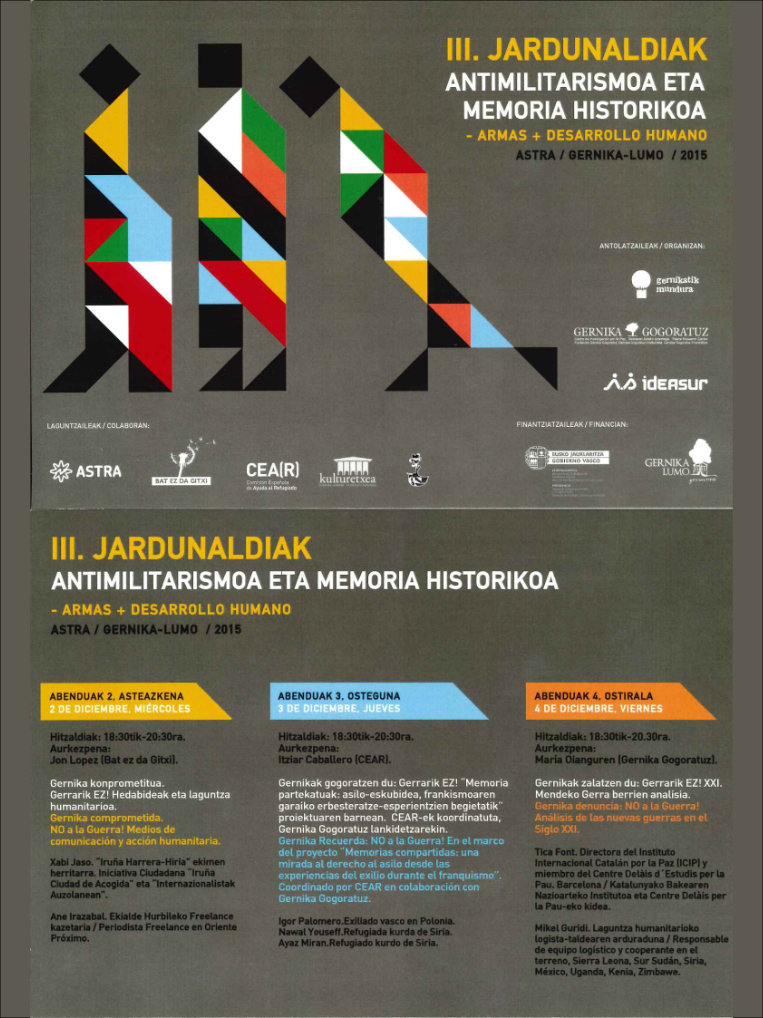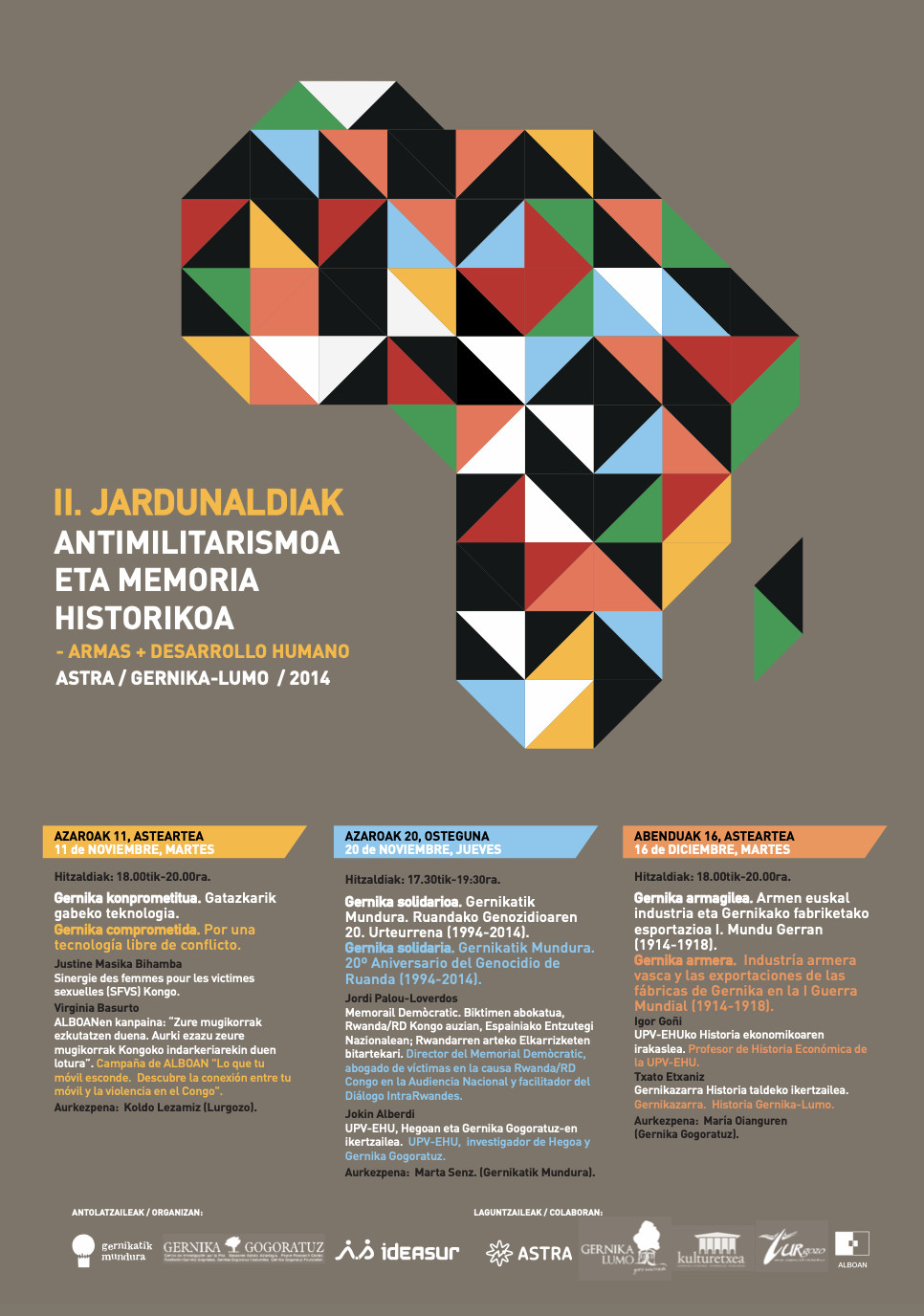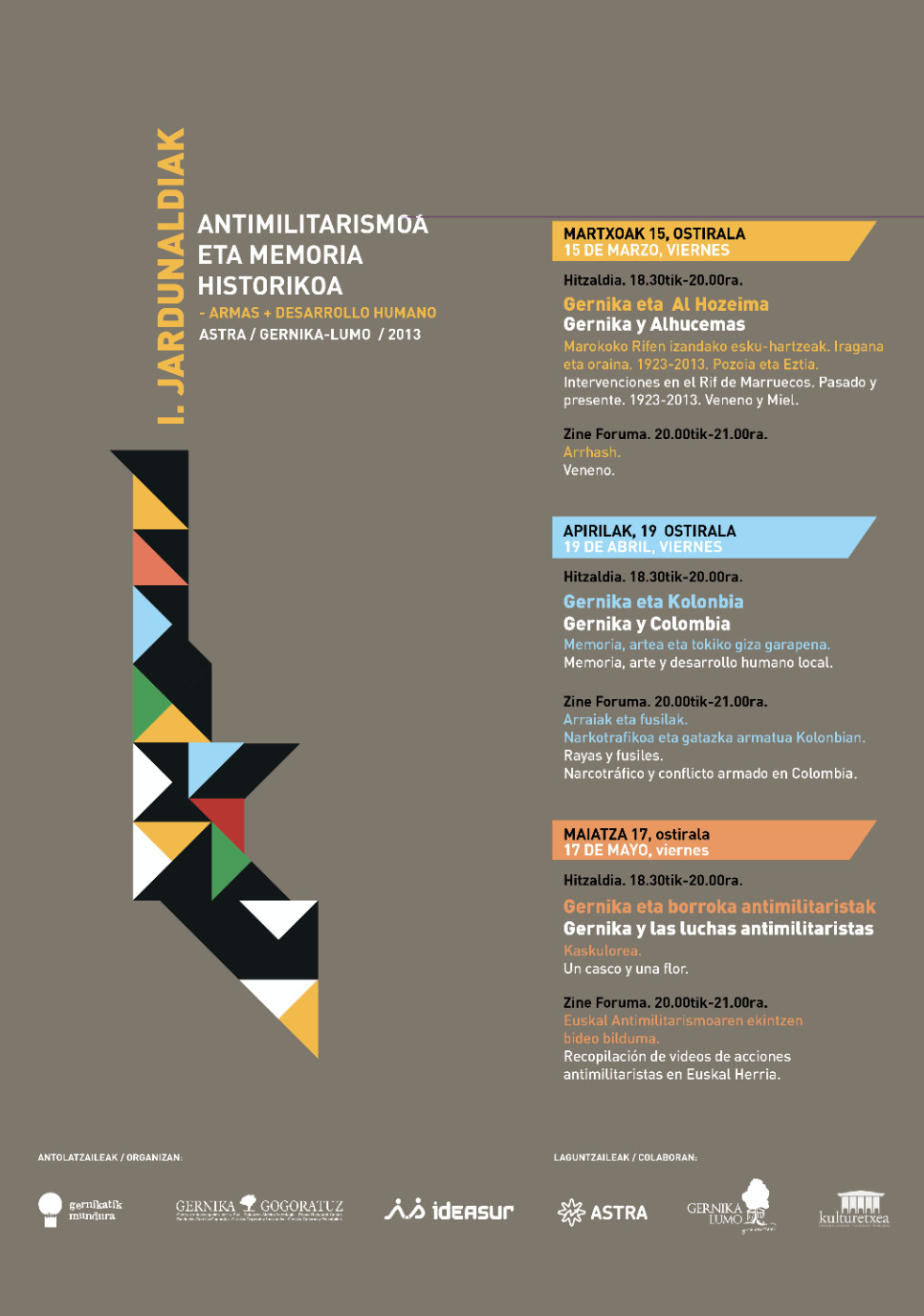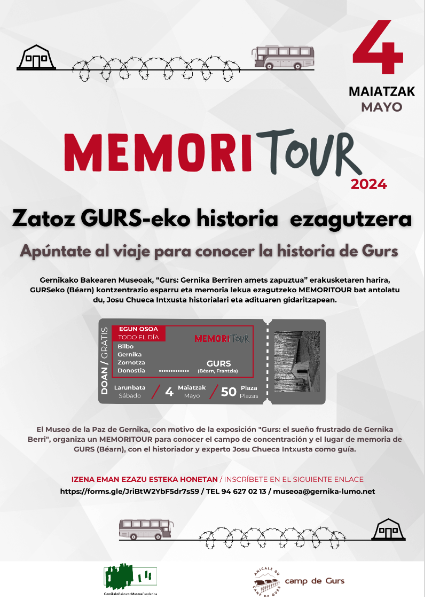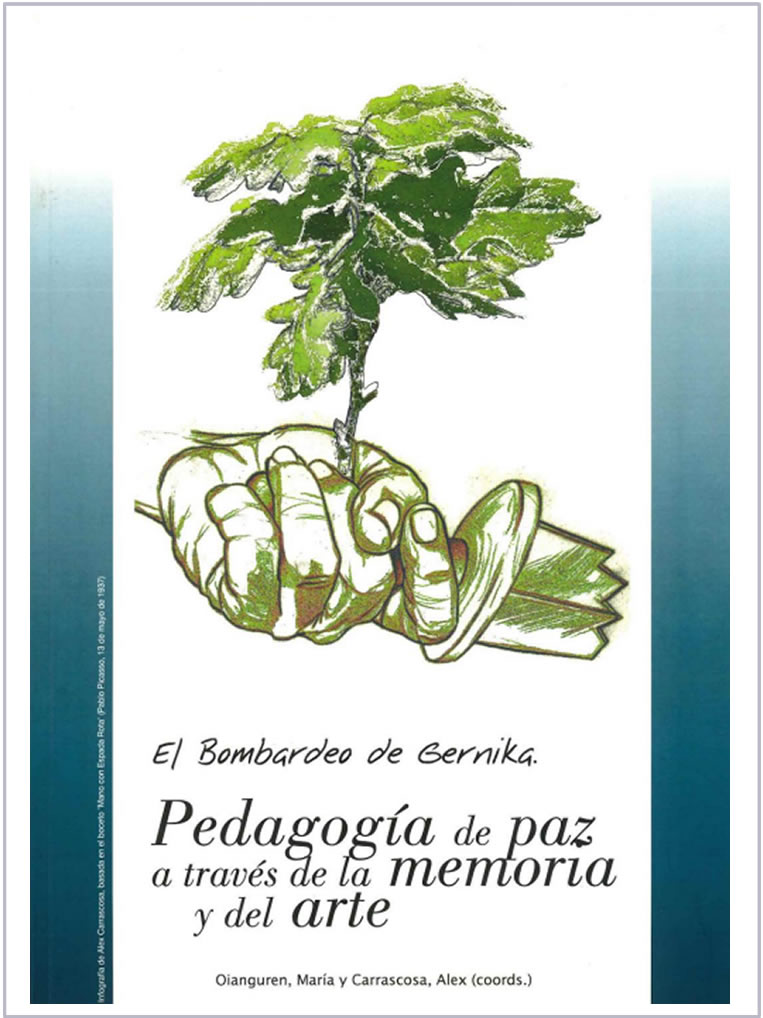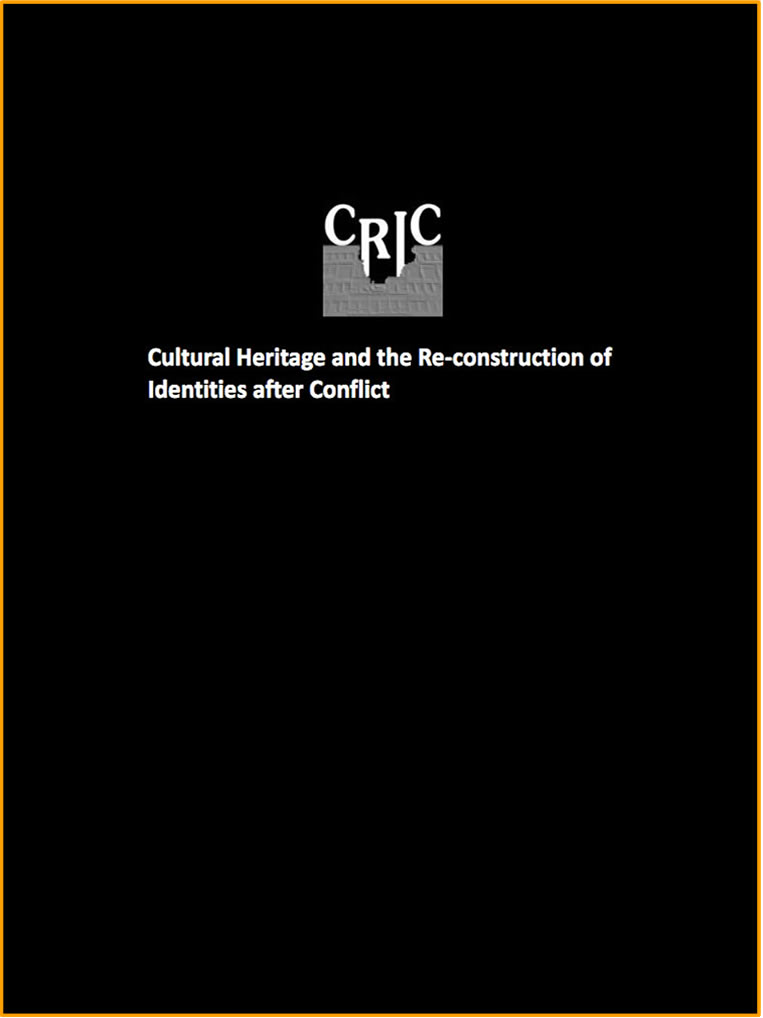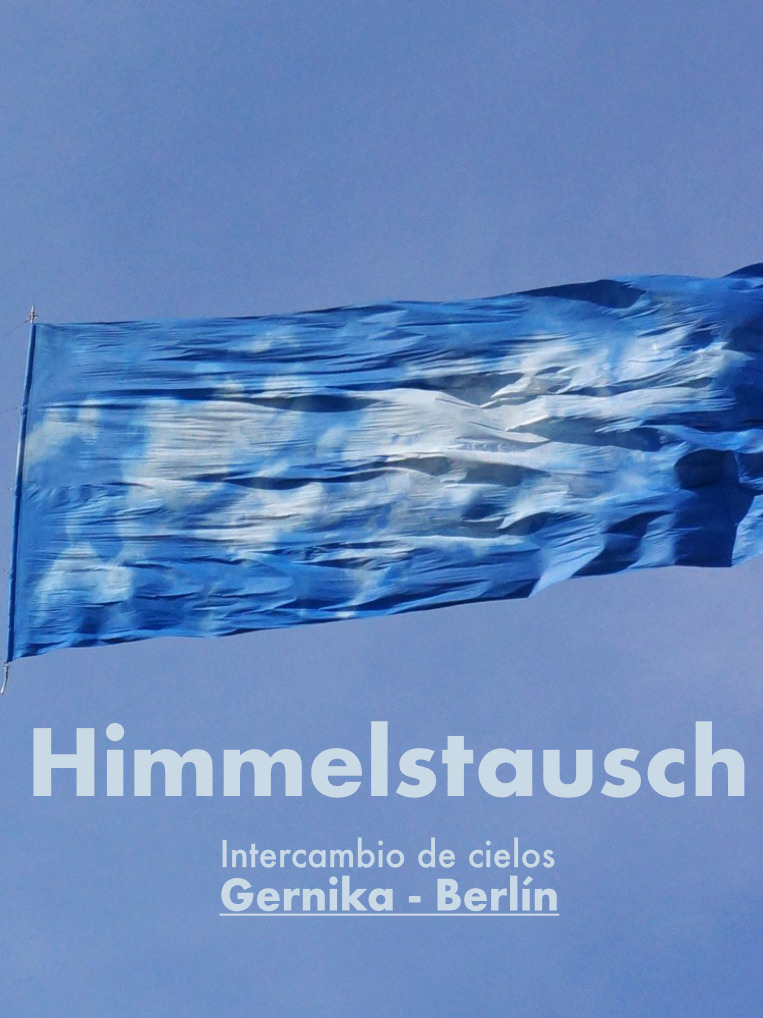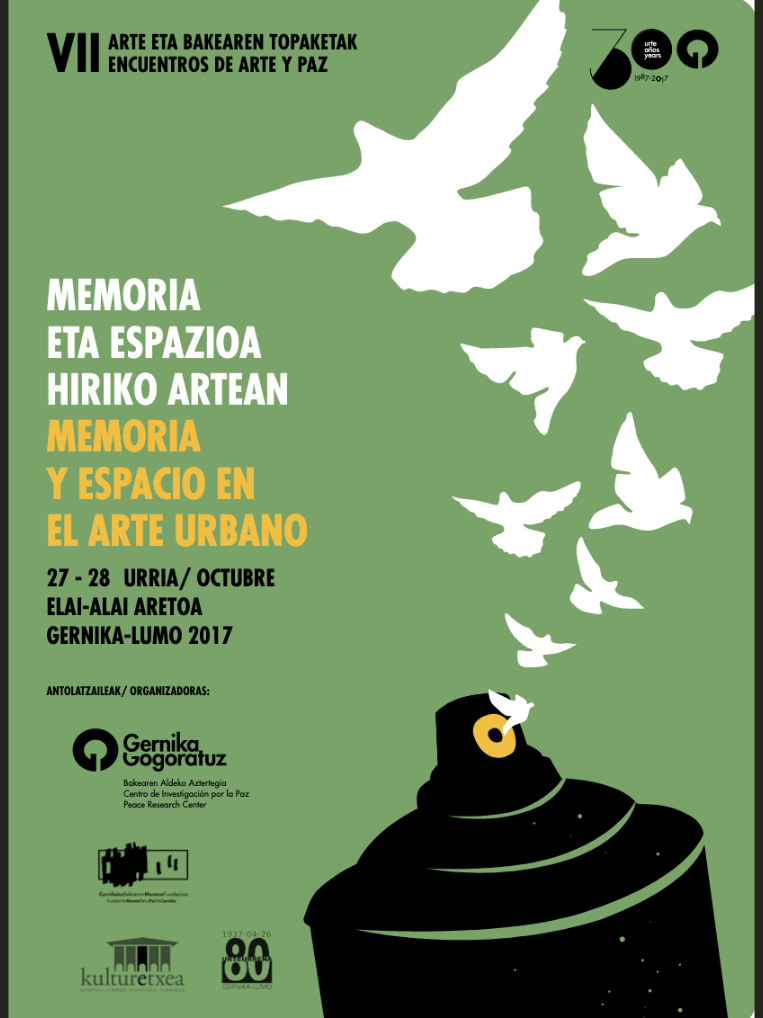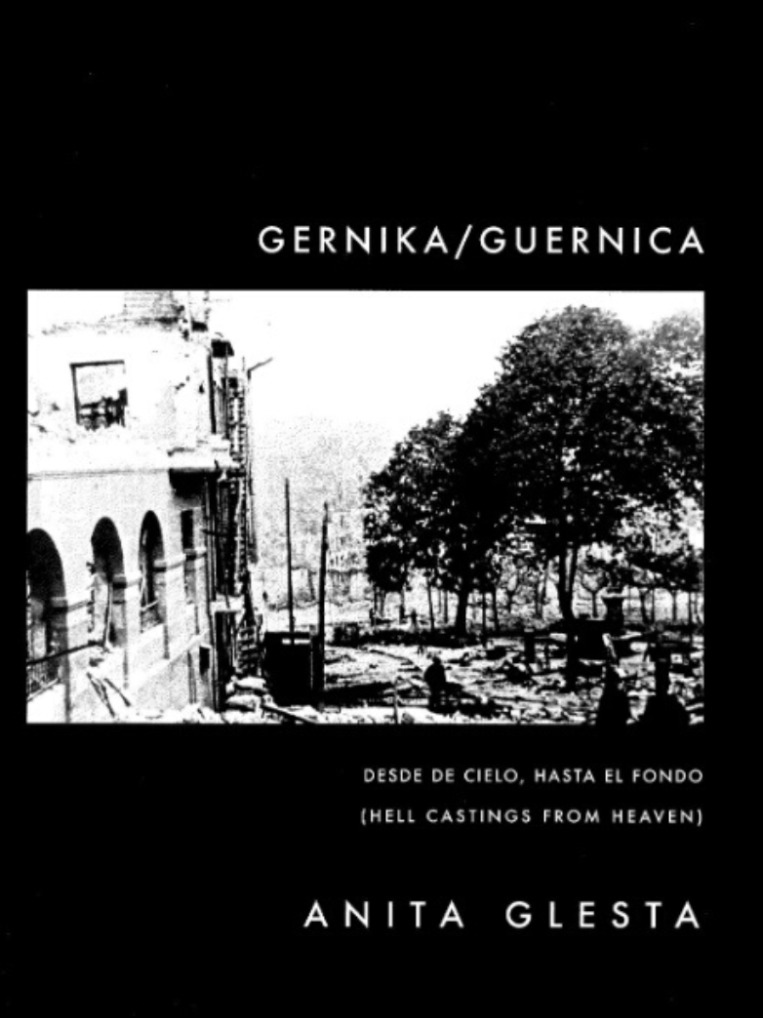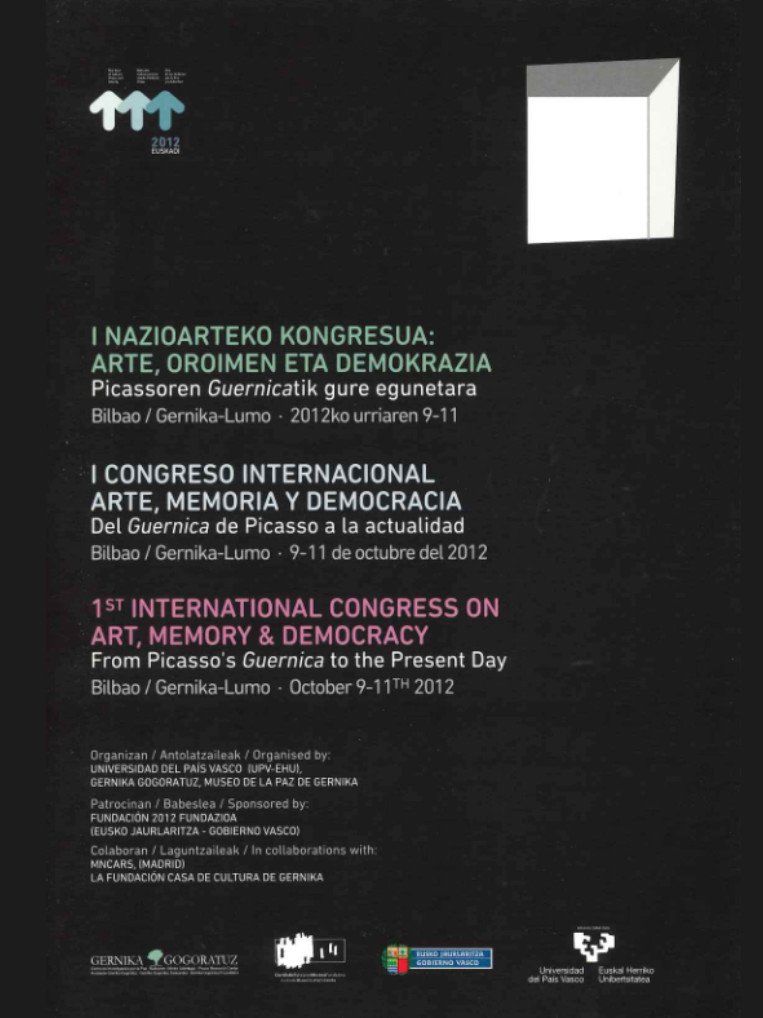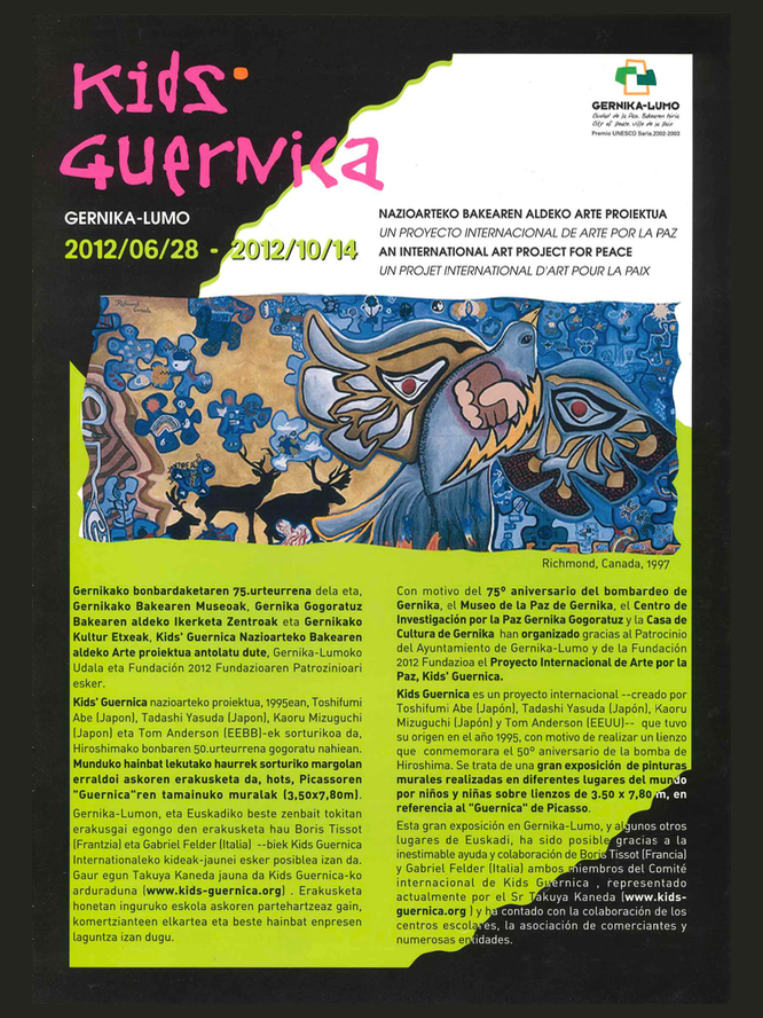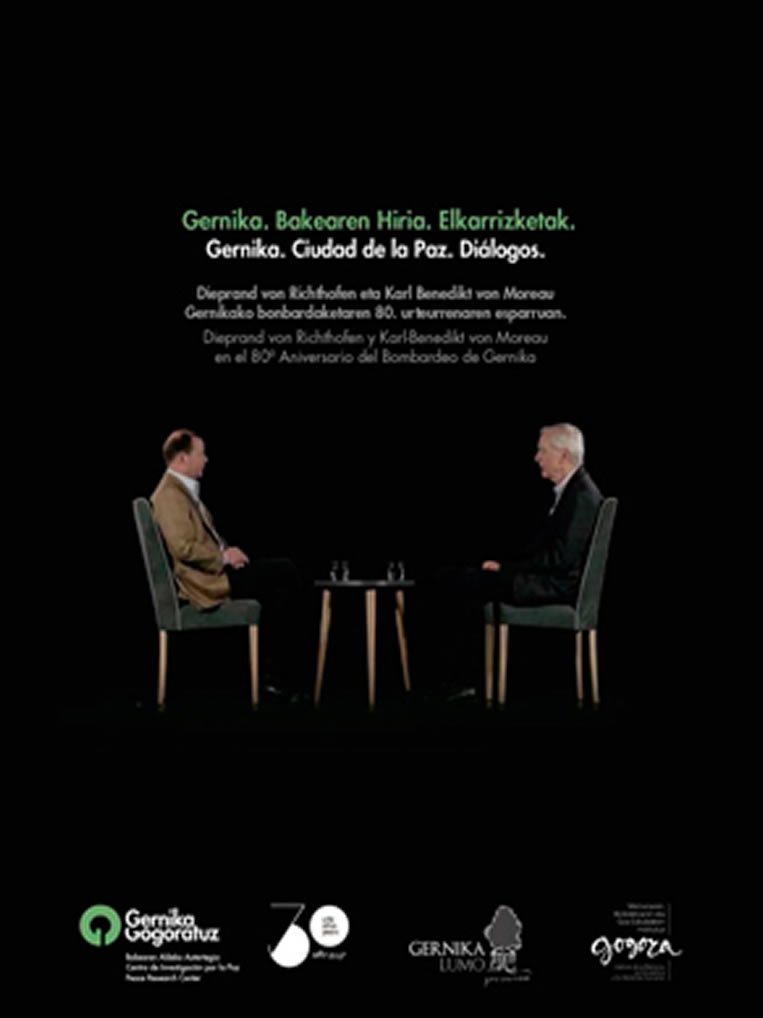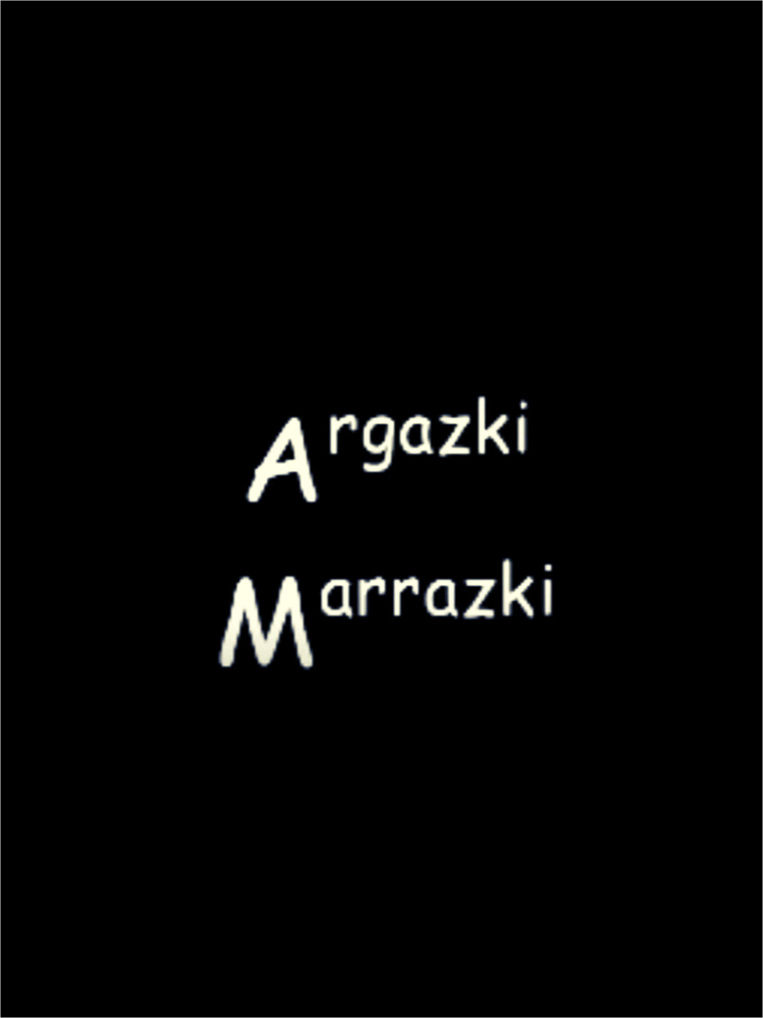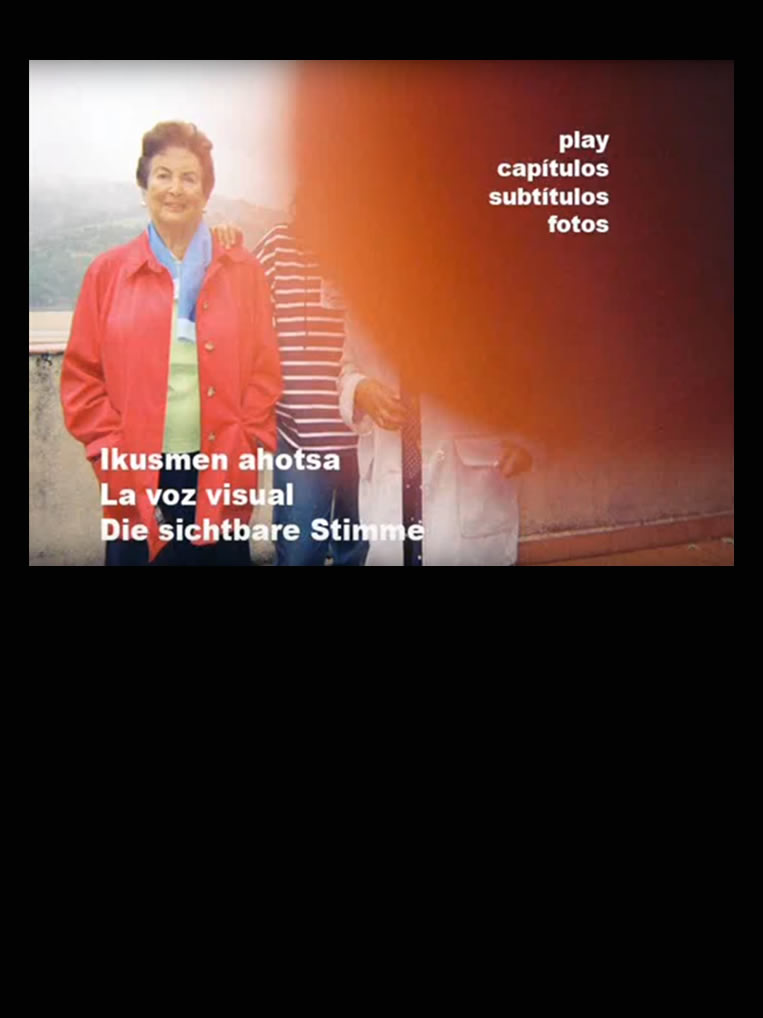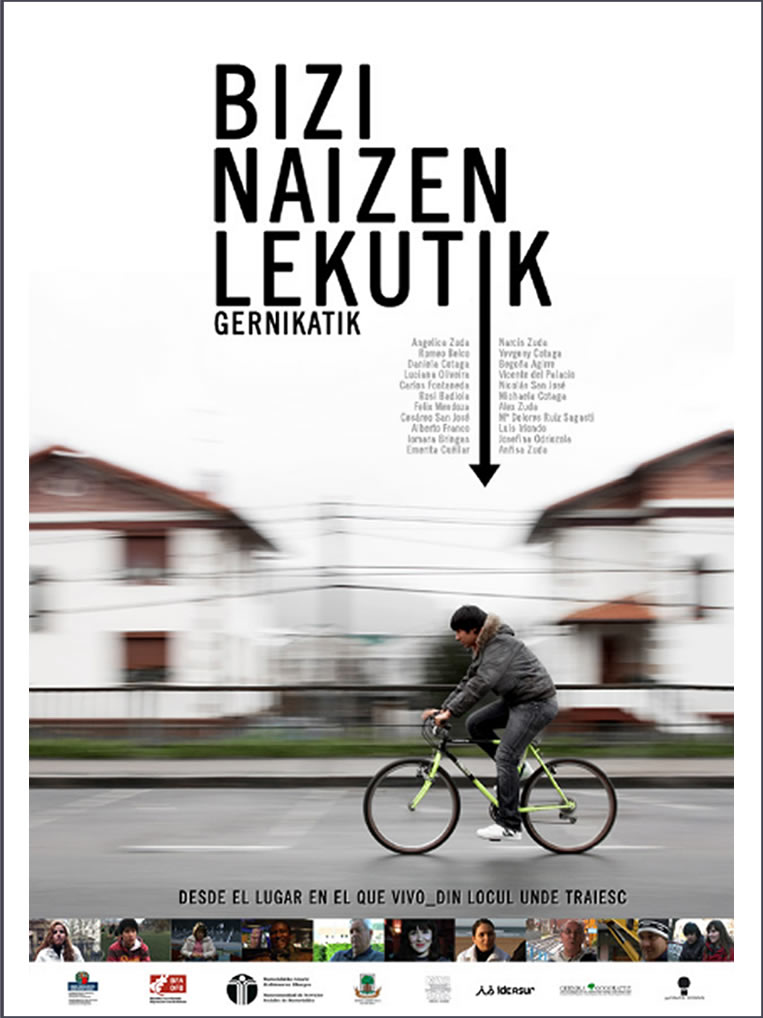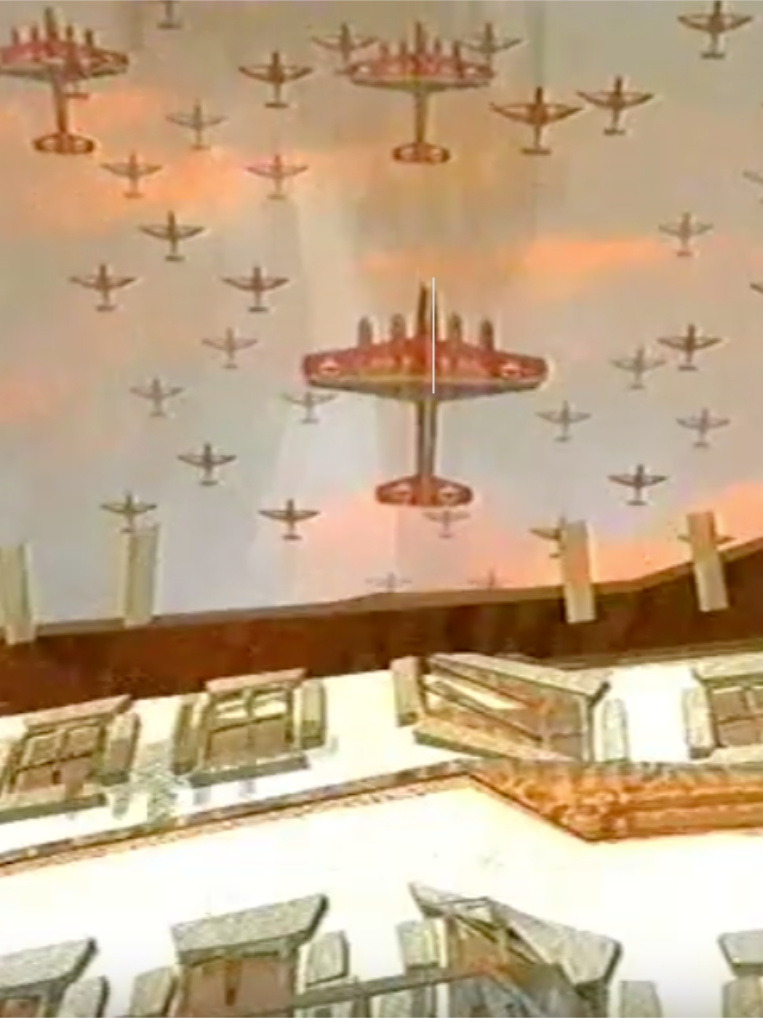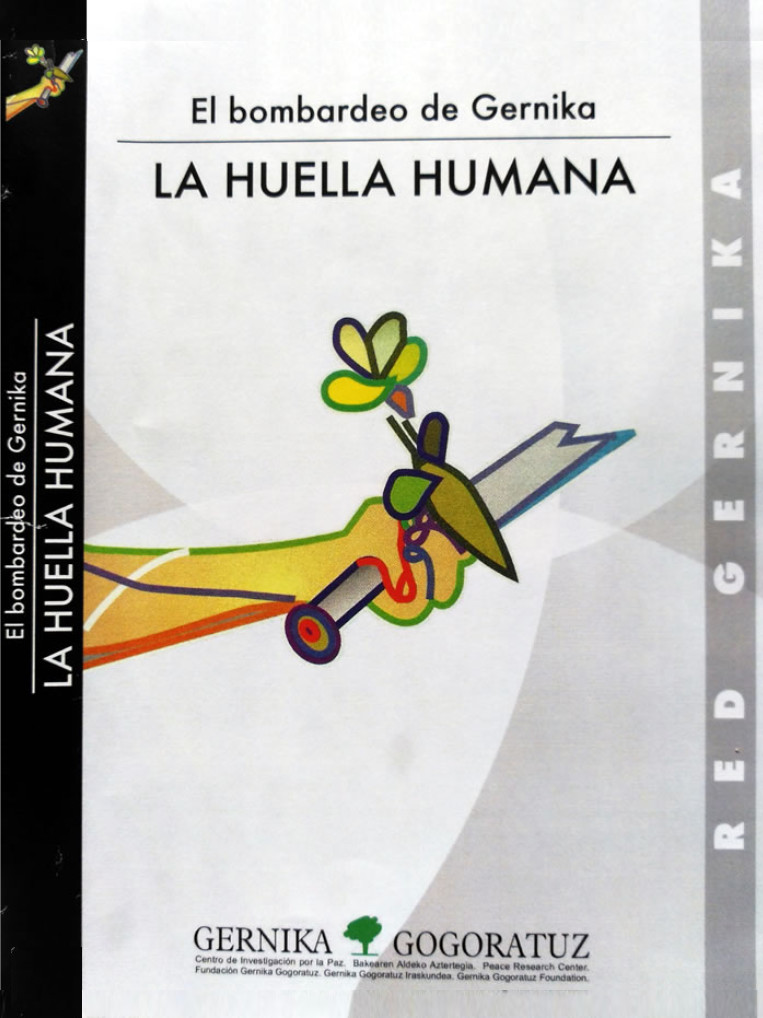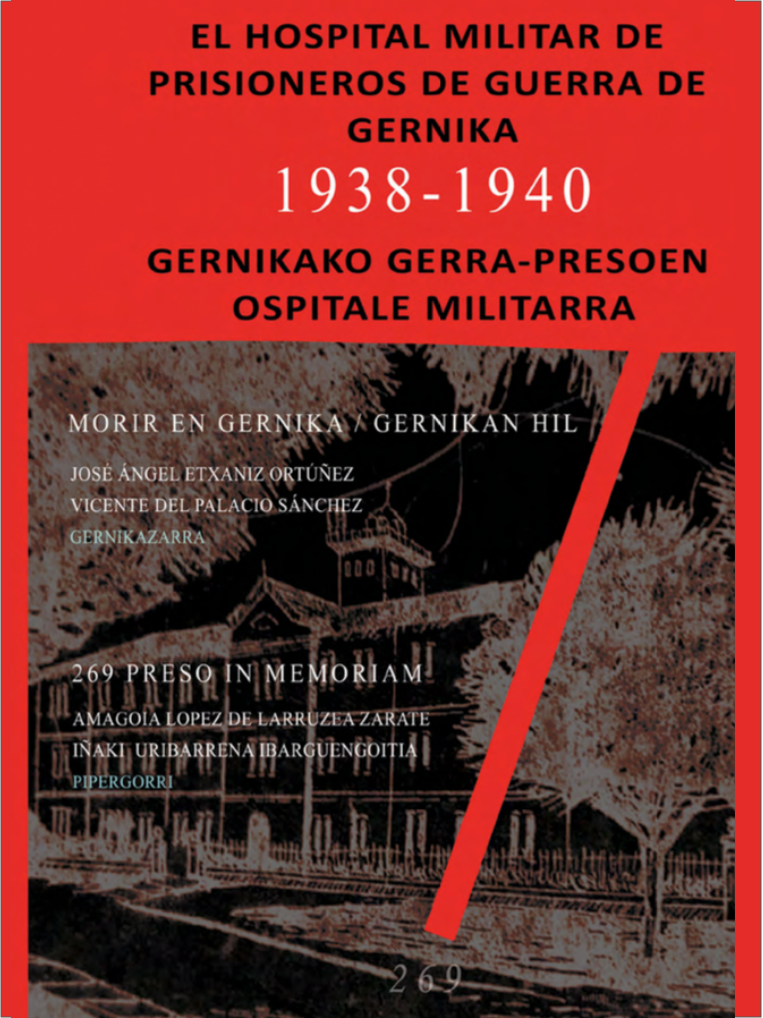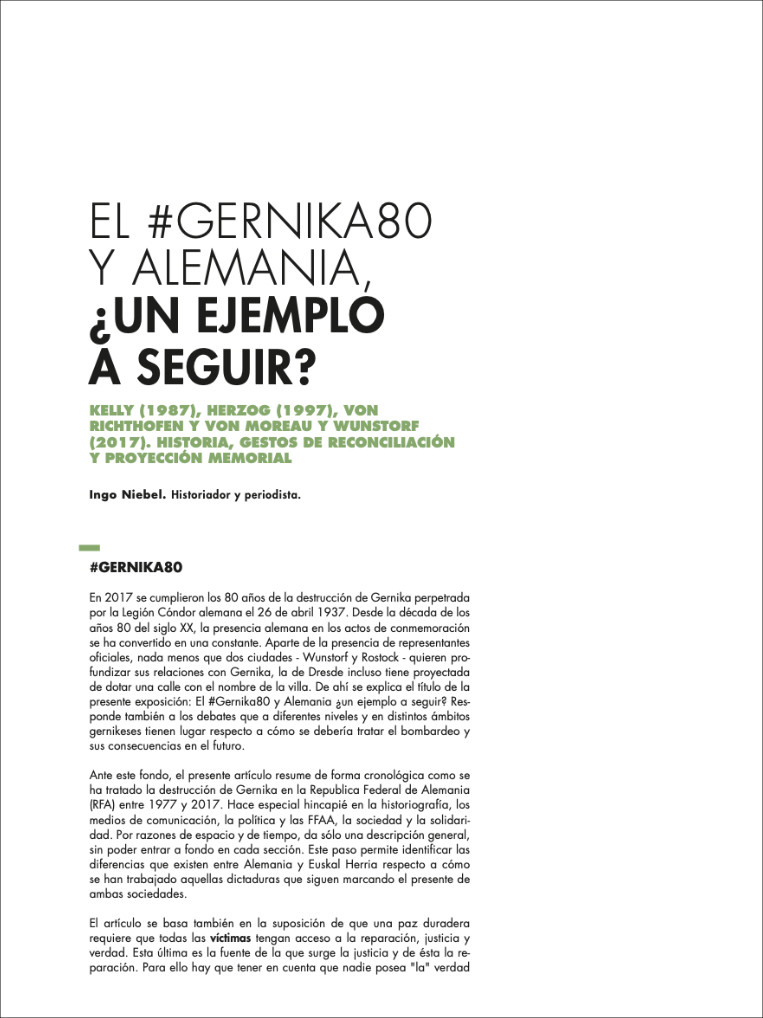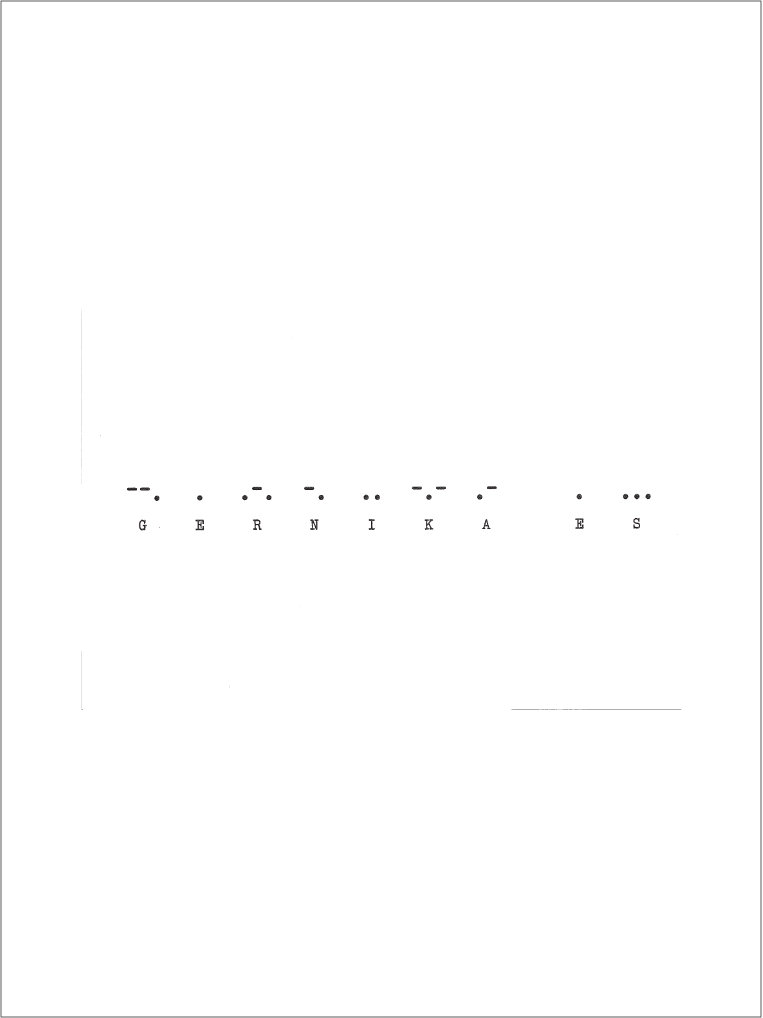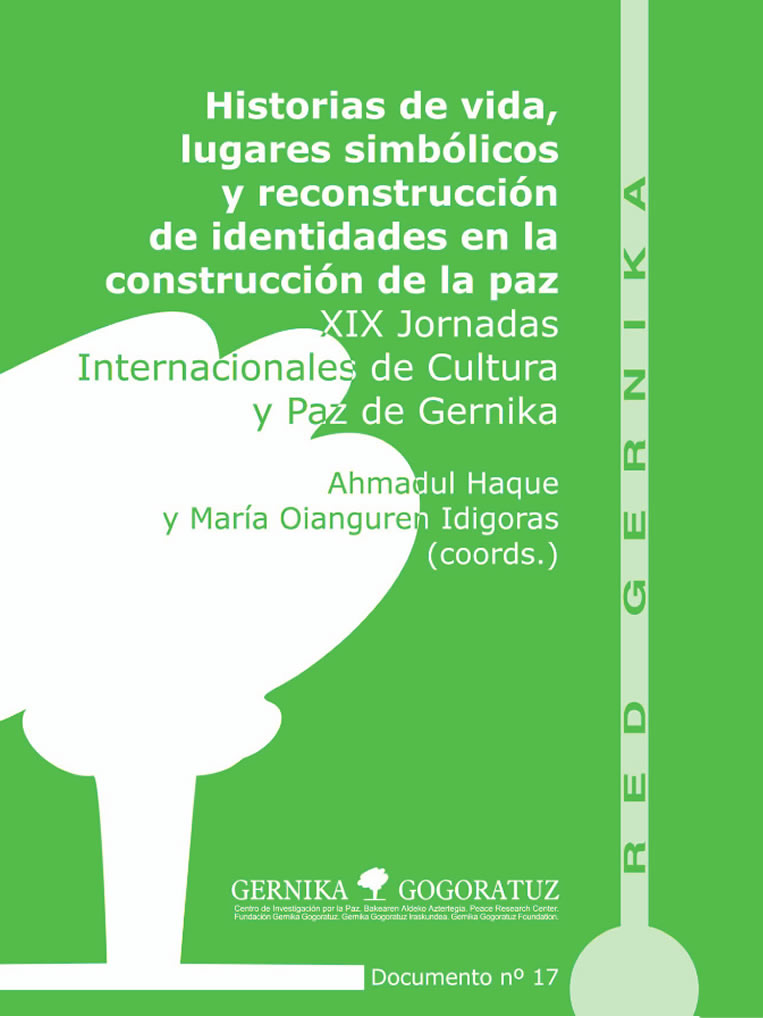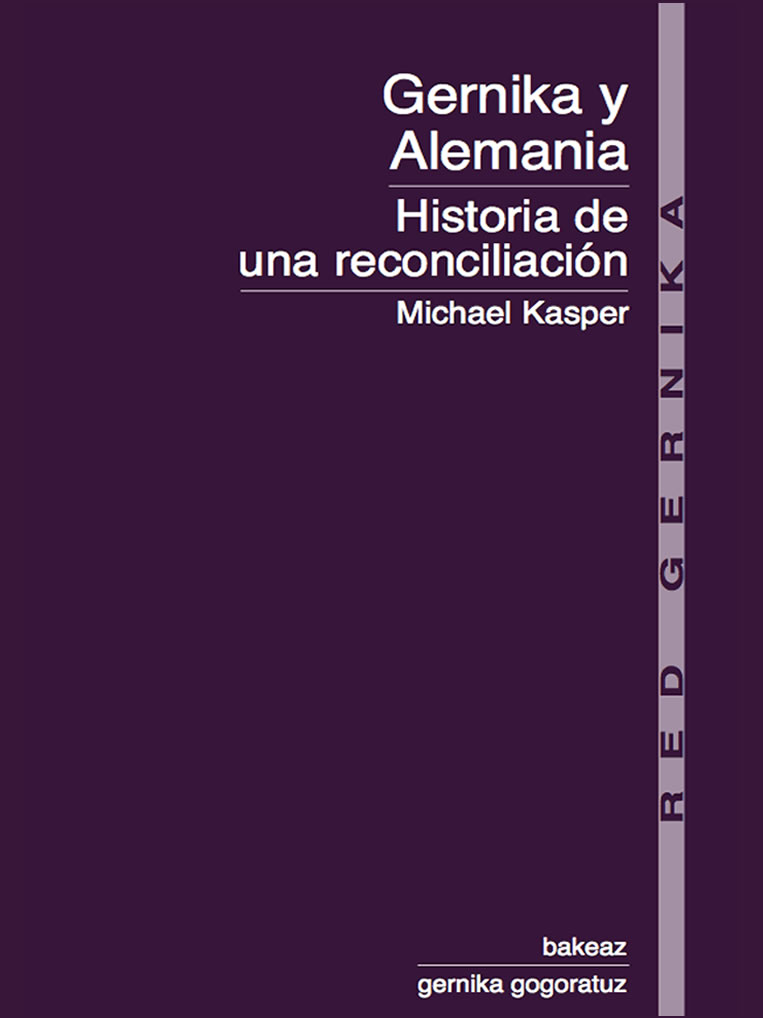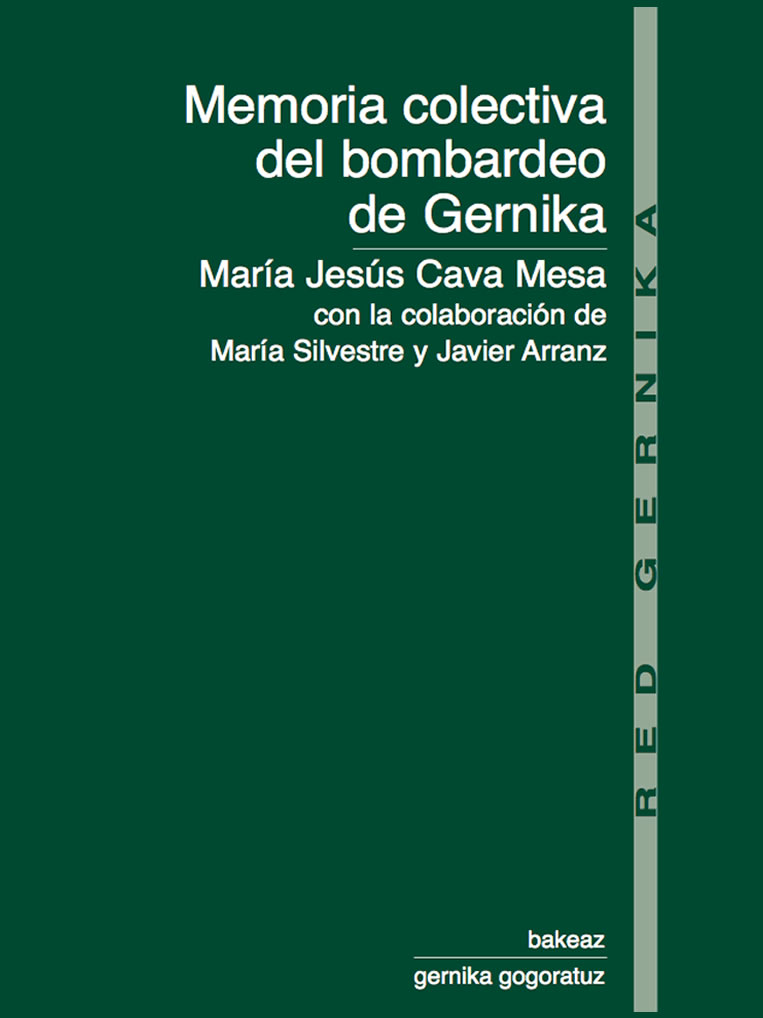On this page we present the work that Gernika Gogoratuz, the Peace Research Centre has carried out in the field of citizen diplomacy as a pedagogy of memory and the culture of peace. It also highlights the symbolic gestures that facilitated the process of reconciliation between Gernika Gogoratuz, the Basque Country

Pedagogy of memory around the bombing of Gernika
and Germany which, together with the creation of the Centre itself in 1987 and the Gernika Peace Museum in 1988, underpinned the “City of Peace” Prize awarded by UNESCO to the town for the Europe region in 2002-2003.
The bombing of Gernika
On 26 April 1937, the German Condor Legion and the Italian air forces allied to Franco’s army, militarily revolted against the democratically elected Spanish Republic, bombed Guernica. There were other bombings, however, the bombing of the historic town occupies a place of reference among the air raids against the civilian population.
The denunciation of George Steer and other war correspondents in the international media and Picasso’s “El Guernica”, the plastic expression of the most emblematic painting of the 20th century, makes it the universal symbol of the horror of war.
Table of contents
- 50th anniversary (1987)
- 60th anniversary (1997)
- 70th anniversary (2007)
- 80th anniversary (2017)Commemorative anniversaries
- Meetings of the collective of men and women survivors of the bombing of Gernika
- Citizen diplomacy and practices for a pedagogy of memory
- Activities
- Gernika Culture and Peace Conference
- Antimilitarist and Historical Memory Conference in Gernika
- Other activities
- Research projects
- Art and Memory
- Published materials
- Press dossier
This page has been created with the support of
Since the beginnings, Gernika Gogoratuz has pursued a dual purpose to promote peace building. To incorporate the dimension of critical thinking into memory studies and to contribute to the strengthening of coexistence in democratic societies. To this end, participatory methodologies have been developed for the social construction of memory in societies affected by war and political violence and, at the same time, theoretical frameworks have been proposed with diverse approaches that provide a methodology for the construction of fair, sustainable and peaceful alternatives for life.
In the field of memory pedagogy research, it is important to open spaces to listen to testimonies of people affected by violence and to enable dialogue processes that allow for understanding the historical context and identifying the impact of wars, armed conflicts and human rights violations.
These spaces favour critical reflection on the past and promote the assumption of personal and collective responsibilities, allowing society to become involved in processes of clarifying the truth, reparation and reconstruction of coexistence.
Commemorative anniversaries
1987 / 50th Anniversary
In 1987, in the context of the 50th anniversary of the bombing, three events determined the origin of Gernika Gogoratuz, which was born with the aim of contributing, with proposals generated or supported by scientific reflection, linked to the town and/or the symbol of Gernika, to the achievement of an emancipating and just peace on a global scale and in the Basque Country in particular.
On 10 April, the Basque Parliament agrees to pay tribute to the victims of fascism in Gernika and ratifies its commitment to the defence of democracy.
At the same time, a group of people with pacifist, ecologist and feminist backgrounds, and UPV-EHU professors committed to peace and conflict studies, set up the “Gernika Gogoratuz” Peace Research Association.
On 18 April, Petra Kelly, pacifist, environmentalist and feminist MEP visits Gernika and calls for the creation of a Meeting Centre for Peace and Reconciliation.
1997 / 60th Anniversary
Gernika Gogoratuz commemorates the 60th anniversary of the Bombing of Gernika together with the Heinrich-Böll Foundation, the survivors of the air raid, the citizens of Gernika and its sister city of Pforzheim, within the framework of the 7th Conference for Culture and Peace. This event is also a memorial and tribute to the life, work and political legacy of Petra Karin Kelly.
The proposals made at the level of citizen diplomacy made the process of reconciliation between Guernica and Germany possible. The rapprochement between the two sides culminated in a gesture of great symbolic value: the greeting of Roman Herzog, President of Germany, addressed to the collective of survivors of the bombing.
The research for the memory recuperation of the collective of men and women survivors of the bombing of Gernika initiates the line of work of memory studies and culture of peace with the aim of opening spaces of encounter. Its aim is to analyse the consequences of wars, learn the lessons of recent history and debate the proposals emerging from the peace agenda.
The collective of men and women survivors, through Luis Iriondo, read a joint communiqué of reconciliation.
2007 / 70th Anniversary
The Erich Maria Remarque Association based in Osnabrück (Germany) visits Gernika with the aim of discussing future collaboration projects on issues of Historical Memory on which Gernika Gogoratuz is already working.
Gernika Gogoratuz proposes a metaphor under the slogan “The art of remembering Gernika. Historical remembrance and commitment to peace” around art as an aesthetic experience to reflect its work in the field of memory and peace-building.
2017 / 80th Anniversary
On April 25 and 26, Dieprand von Richthofen and Karl-Benedikt von Moreau visited Gernika at the invitation of Gernika Gogoratuz to take part in the commemoration of the 80th anniversary of the Bombing of Gernika.
Dieprand von Richthofen (hijo) y Karl-Benedikt von Moreau (sobrino) de los pilotos que bombardearon Gernika en abril de 1937.
Meetings of the collective of men and women survivors of the bombing of Gernika
Gernika Gogoratuz organises the meetings of male and female survivors every year from 1997 to 2010.
These activities are key to the recovery of historical memory through the narratives of the protagonists.
In 1997, during the 60th anniversary commemoration, the first meeting of survivors is held in the market square in Guernica.
The collective of men and women survivors, through Luis Iriondo, read a joint statement of reconciliation.
1999. III Encuentro
The survivors’ collective asked the then Government Minister of Culture to clarify the authorship of the Bombing of Guernica.
2001. V Encuentro
The “Life Stories” project is presented, with the participation of sons and daughters, grandsons and granddaughters of the survivors.
Ellen Fritsche, daughter of Commander Von Richthofen from Germany sends a letter to the survivors of Guernica.
2002. VI Encuentro
Artists from different parts of the world meet with survivors of the bombing of Guernica and relatives of survivors of the bombing of Hiroshima and Nagasaki. The first Historical Memory exhibition is organised.
2003. VII Encuentro
The survivors of Dresden (Germany) and Guernica write a joint manifesto against armed intervention in Iraq.
2004. VIII Encuentro
Dresden bombing survivors Nora Lang and Helga Sievers and the Mayor of Pforzheim, Christel Augenstein, visit Guernica.
2006. X Encuentro
The presentation of the project “Gernika. From the sky to the bottom” by the artist Anita Glesta from New York in which Gernika Gogoratuz collaborates.
2007. XI Encuentro
On the 70th anniversary of the commemoration of the bombing of Gernika, a meeting is held with representatives of the three associations of children of the war in the Basque Country (Bizkaia, Gipuzkoa, Araba) and representatives of the collective of survivors of the bombing of Durango and Otxandio.
2009. XIII Encuentro
The photo book with images of the 10 years of meetings, lunches and activities of the survivors of the bombing of Gernika (1997-2008) is presented.
2010. XIVEncuentro
The meeting is held to share life stories and commemorations with testimonies from Otxandio (22 July 1936), Durango (31 March 1937), Sant Adriá de Besós (1937 and 1938), Nagasaki (9 August 1945) and Gernika (26 April 1037).
Citizen diplomacy and practices
for a pedagogy of memory
Research programmes, exhibitions and the production of documents have led to innovative initiatives that have contributed to the culture of peace through advocacy and collaboration with numerous regional, national and international networks.
The initiatives carried out at the level of citizen diplomacy, complementary to those carried out by traditional actors, make the process of reconciliation between Guernica and Germany possible.
Testimonies of men and women survivors
Messages of reconciliation
“Let’s walk together for peace” Initiative
The initiative “Let’s walk together in Peace” is a peace association formed by the survivors of the bombings of Gernika, Dresden (Germany), Hiroshima, Nagasaki and Tsuchizaki (Japan).
“Let’s walk together in Peace” is based in Gernika Gogoratuz.
The aim of the initiative is:
– To agree on the resources to avoid war or violence with innocent victims.
– The abolition of nuclear weapons.
– To propagate the need for peace.
– To work for the continuation of peace work by new generations.
Re-discovering Guernica
In terms of citizen diplomacy, activities are carried out to make issues visible and place them on international agendas.
In 1992, a campaign against the German Ministry of Defence for the use of “Guernica” in recruitment posters for military service.
The second campaign to highlight is the 2003 initiative “Re-discover Guernica” for the concealment of the replica of “Guernica” at the UN headquarters in the face of the invasion of Iraq and as an appeal for peace.
Activities
Every year, activities are carried out that provide a line of studies on memory and the culture of peace, allowing spaces to evoke memories, summon intentions and provoke reflections on the collective construction of peaceful coexistence.
Gernika Culture and Peace Conference
Organised since 1991 as part of the commemoration of the Bombing of Gernika in collaboration with the town council.
See all editions of the conference since 1991
Antimilitarist and Historical Memory Conference in Gernika
Gernika Gogoratuz, Gernikatik Mundura and Ideasur in collaboration with the City Council and the Kultur Etxea of Gernika have been organising these meetings for reflection and artistic expression in Astra, a former arms factory since 2013.
The objectives are the denunciation of militarism and the war industry, as well as the recovery of historical memory.
Research projects
As part of the line of work on memory studies and the culture of peace, studies and training activities are carried out in order to develop a pedagogy of memory. Over the years, the following are carried out
projects to encourage the exchange of experiences and foster intergenerational dialogue.
Pedagogía de la Paz a través de la memoria. El bombardeo de Gernika
From the pedagogy of memory, it deals with the “Bombing of Gernika” in the context of the Spanish Civil War for its study and exhibition in the educational field. Funded by the Ministry of the Presidency. Government of Spain and Gernika Gogoratuz. 2007 – 2008. The didactic unit accompanies the documentary El bombardeo de Gernika.
CRIC. Cultural heritage in the reconstruction of identities after the conflict.
Research project within the European programme (2008-2012) in which a study was carried out at local level to explore the collective memory of the bombing, its integration into contemporary identity and the development of the symbolic and memorial landscape of Gernika. Funded by the European Union within the Cooperation programme under the Seventh EU Framework Programme (ID FP7-SSH-2007-5.2.1 History and identities).
Art and Memory
Creative activities are carried out to create a pedagogy of memory that contributes to the transformation of conflicts in a peaceful way.
Published materials
The Gernika Network Collection publishes audiovisual materials and monographs in the field of memory studies and culture of peace.
In addition, Gernika Gogoratuz also collaborates in the publication of materials with other organisations.
Audiovisuals
Monografías
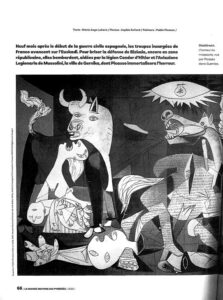
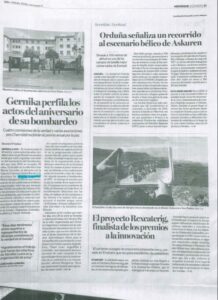
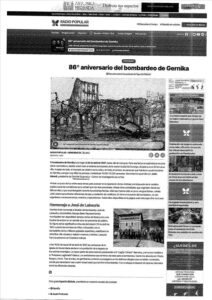
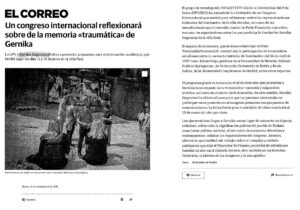
This page has been created with the support of
